Arts & Entertainment
In diverse slate of winners, Oscar is the biggest loser
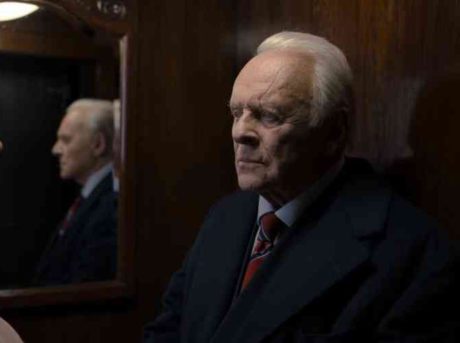
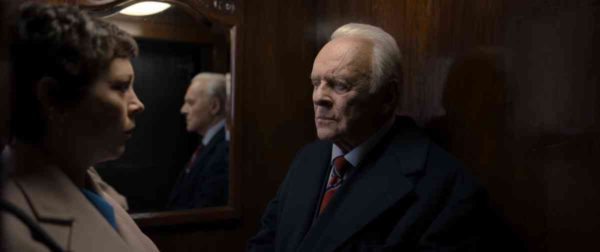
Best Actor winner Anthony Hopkins (center) with co-star Olivia Colman in “The Father” (image courtesy Sony Pictures Classics)
We knew the Academy Awards were going to be different this year.
Forced by Covid to reimagine its traditional presentation format, the movie industry’s most prestigious awards show convened not at Hollywood’s Dolby Theatre — at least, not for most of it — and opted instead to broadcast the ceremony from the relative intimacy of Los Angeles’ historic Union Station, where a small audience of nominees, presenters and guests gathered under “live set” safety protocols while other participants connected from various remote hook-ups across the world. Instead of auditorium seating, tables; instead of an orchestra, Questlove. In addition, show producers Steven Soderbergh, Jesse Collins, and Stacy Sher chose to shoot the event cinematically, employing the tricks and techniques of film to transform the evening from the stodgy affair so many of us love to hate into something resembling a movie. As promised during the week ahead of the broadcast, the show was going to tell a “story.”
It was a gamble that didn’t pay off.
Things started out promisingly enough, it must be said, with an opening tracking shot that followed host Regina King from the bright L.A. sunshine into the cool darkness of Union Station. The motion, the music, and most of all King’s commanding presence, gave us the sense that something big was about to happen. Then, early in her opening comments to the audience, King brought substance to the weight by commenting that “if things had gone differently in Minneapolis this week, I might’ve traded in my heels for marching boots” — reminding us (as if it were needed) of the national focus on Black justice that hung alongside Oscar’s long-lamented struggle with diversity like a shadow over the evening. The central theme of this Oscar “movie,” it seemed, had been firmly established.
For awhile, it seemed to be working. The evening’s first winners were Emerald Fennell for Best Original Screenplay, for “Promising Young Woman,” and Florian Zeller for Best Adapted Screenplay, for “The Father,” appearing to set a tone for the ceremony in which recognition would be spread around to all — something very much in tune with the presumed subplot of the “story” we were being told, in which Oscar would redeem itself from the #OscarsSoWhite associations of its past and prove itself to be a champion for fair and equal diversity, after all.
Soon after, Daniel Kaluuya took the award for Best Supporting Actor – no surprise there, as his performance as slain Black Panther leader Fred Hampton in “Judas and the Black Messiah” had won the equivalent prize from every other major film awards so far — firmly establishing the “redemption” theme by celebrating the powerful work of a Black actor in a true-life story that addressed the corruption and tragedy of systemic racism in America. A pair of awards for “Ma Rainey’s Black Bottom” (Best Makeup and Styling, Best Costume Design), as well as a win for the police-violence-themed “Two Distant Strangers” as Best Live-Action Short, reinforced it even further. Better still, a shout-out to trans acceptance from “Ma Rainey” stylist Mia Neal in her speech, and a plea from “Strangers” writer/director Travon Free for audiences not to be “indifferent to our pain” in his, lent a powerful sense of earnestness that made the whole thing feel authentic. Maybe this year, Oscar was finally getting it right.
Unfortunately, the Oscar “story,” in its effort to be inclusive, allowed all the winners to talk until they were done. In other words, Questlove did not start playing anyone off when they had used up their time, and the ambitious “movie” of the Oscars soon began lose any momentum it had built. This is not to say that the winners don’t deserve their time in the spotlight, or that some of the things that were said were not worthy of being heard; but anyone in show business should know the importance of keeping your audience interested, and the Academy Awards have such a long history of running ponderously overtime that it seems some kind of middle ground might have been reached.
There were other familiar complaints, too. The annual “in memoriam” segment inevitably left out some important names (Ann Reinking, Jessica Walter, “Glee” star Naya Rivera, and former Oscar nominee songwriter Adam Schlesinger, to name just a few), and there was an awkward segment in which Questlove played “Oscar trivia” with audience members, who were asked to identify movie songs that did NOT win the Academy Award. The latter situation was almost saved by nominee Glenn Close, who did an “impromptu” rendition of “Da Butt” that was as goofily charming as it was obviously pre-planned.
As the show wore on, the cinematic conceit chosen to revitalize the proceedings became mostly irrelevant in the face of Oscar’s usual baggage. Further, the absence of any performances of the year’s nominated songs, typically a favorite feature of fans at home, meant there was little respite from the dullness, which was made all the more apparent by the increasingly bored faces of the onscreen audience. The omission may have been due to the difficult logistics of additional Covid protocols, but surely pre-taped performances might have helped to perk things up. For the record, Best Original Song went to “Fight For You,” from “Judas and the Black Messiah.”
Along the way, there were noteworthy wins. The much-loved Pixar-Disney film “Soul” took the award for Best Animated Feature, as well as winning Best Original Score for composers Trent Reznor, Atticus Ross, and Jon Batiste; the virally popular “My Octopus Teacher” won for Best Documentary Feature; David Fincher’s black-and-white old-Hollywood homage “Mank” took the prizes for Best Production Design and Best Cinematography, continuing the trend of spreading out the wealth among the front-running contenders; in presenting Best Film Editing to “The Sound of Metal,” still-hunky Hollywood curmudgeon Harrison Ford gave an amusing nod to “Blade Runner,” the revered 1982 sci-fi film in which he starred, by reading the scathingly negative studio notes from a pre-release screening; and Best Supporting Actress went to veteran performer Yuh-Jung Youn for her work in “Minari,” making her only the second woman of Asian heritage to win the award (the first was Miyoshi Umeki for 1957’s “Sayanora”) — and making Close, who was nominated for her role in “Hillbilly Elegy,” tied with Peter O’Toole as the actor with the most nods without a single win.
By the time we reached the presentation of the four top prizes, there was little left of whatever enthusiasm had been drummed up by the opening segment of the show. Chloe Zhao’s expected win as Best Director, for “Nomadland,” making her the first Asian-American woman (and only the second woman, period) to receive the award, was an appreciated high point for her enthusiastic gratitude alone, but at this point, things had become pretty much business as usual, despite the grand designs and cinematic flourishes of the producers.
Then, the big twist came. Best Picture, always the final award of the evening, was being announced before the Lead Acting awards. What was happening? Was the Oscar “movie” about to give us a surprise ending?
The winner, “Nomadland,” had been favored, and star Frances McDormand helped to make the moment a highlight with a “wolf” howl (dedicated to sound mixer Michael “Wolf” Snyder, who passed away last month) when she joined the film’s other producers at the podium, but surely neither of those things warranted switching the order. Perhaps a clue to what was really happening could be found in the choice of presenter – Hollywood icon Rita Moreno, still fabulous at 89, whose Best Supporting Actress win for 1961’s “West Side Story” happened to have made her the first Hispanic woman to win an Oscar. Was this reminder of diversity from the Academy’s past a sign that the “redemption” theme was about to pay off?
It suddenly became obvious. The Oscar “movie” was leading up to an emotional finale, a big and uplifting triumph that would not only be a celebration of diversity, but a tribute to a gifted young man whose talents had been taken away from us too soon. The story of Oscar’s redemption would culminate in the posthumous awarding of the Best Actor prize to Chadwick Boseman, whose nominated performance in “Ma Rainey’s Black Bottom” was the last work he completed before losing his private battle with colon cancer and passing away at 43 last August. That would definitely be a “wow” finish.
Best Actress came first, accompanied by some suspense due to being one of the few categories without a clear front-runner. McDormand took the statue for “Nomadland,” joining a small handful of other performers as a three-time-winner and preventing “Ma Rainey” star Viola Davis from becoming the first Black actress to win twice. Her speech was refreshingly short and humble, a tribute to the joy of “the work” which included a quote from Shakespeare’s “Macbeth” (“My voice is in my sword”) – a play considered by actors worldwide to be “cursed,” which in retrospect casts an interesting light on what happened next.
To present the final award, last year’s Best Actor winner Joaquin Phoenix (looking exceptionally uncomfortable) came to the mike and, after a feeble joke about his reputation for method acting, read off the five nominees before opening the envelope to bring about the now much-anticipated denouement.
“And the Oscar goes to… Anthony Hopkins, ‘The Father.’”
It wasn’t quite “fade to black, roll credits” after that, but it might as well have been.
There was no uplifting finale, no redemption of the Academy as a reward for its show of diversity. There was only another in a long-running series of gaffes (remember the “La La Land” vs. “Moonlight” debacle from just a few years back?) that have made the Oscar show’s tendency to mess things up a running joke.
This one, however, was possibly the worst. In an arrogant attempt to shape a narrative out of real life events that hadn’t even happened yet, the Academy seems to have chosen to manipulate its audience into an emotional reaction — one that would have bolstered its own reputation and perhaps made up for some of its former perceived missteps — while exhibiting a cynical overconfidence in its own ability to predict the sentiments of its voters. As a result, its “wow” finish turned into an abrupt and uncomfortable faux pas, diminishing both Hopkins’ victory for a career-topping performance (which, at 83, makes him the oldest acting winner in Oscar history) and Boseman’s searingly powerful work by obscuring their accomplishments behind a colossal f*ck-up born of its own hubris.
It’s worth noting that a plan was (reportedly) in place in the supposedly “unlikely” event that Hopkins would win, in which “Father” co-star Colman – known for her disarming grace and humor in awards situations – would have accepted the award in his absence. As reported by The Guardian, Phoenix forgot to call her to the stage, resulting in the dull thud that was the end of the 93rd Academy Awards. Regardless, the Academy has only itself to blame. In its eagerness to tell the story it wanted to tell about itself, it appears to have forgotten that you have to know the ending first.
Ironically, when removed from all the drama, the list of winners does represent one of the most diverse and inclusive slates in Oscar history. It’s not enough, but it’s a start.
On that note, as a final observation, the LGBTQ community, despite recent strides in being acknowledged by Oscar, went largely unacknowledged at this year’s ceremony, with queer front-runners like “Two of Us” (a French contender for Best International Feature) and David France’s devastating “Welcome to Chechnya” (shortlisted for Best Documentary Feature) having been shut out of the nominations and no significant queer content among most of the nominated films. Apart from Neal’s aforementioned invocation of trans acceptance as part of a possible future in which the recognition of all women for their achievements would be “normal,” the only other time we came up was during Tyler Perry’s acceptance speech for the Jean Hersholt Humanitarian Award.
Perry, whose highly popular films are frequently criticized for embracing borderline homophobic and transphobic humor and perpetuating problematic tropes about gender and sexuality, gave a speech calling for people to “refuse to hate” anyone “because they are Mexican, or because they are Black or White, or LBGTQ” or “because they are a police officer” or “because they are Asian.” Apart from the conflation of being a police officer (a choice) with being an LGBTQ person or a person of color (not a choice), the fact that he mixed up the “B” and the “G” is a clear indicator that, while he may refuse to hate us, he’s not exactly a committed ally, either.
If the LGBTQ angle seems like a footnote to the story, that’s because it is. Once more, the queer community is left feeling like an uninvited guest by the Academy.
If Oscar wants its story to be about diversity, it’s clear that next year’s “story” needs some better writers.
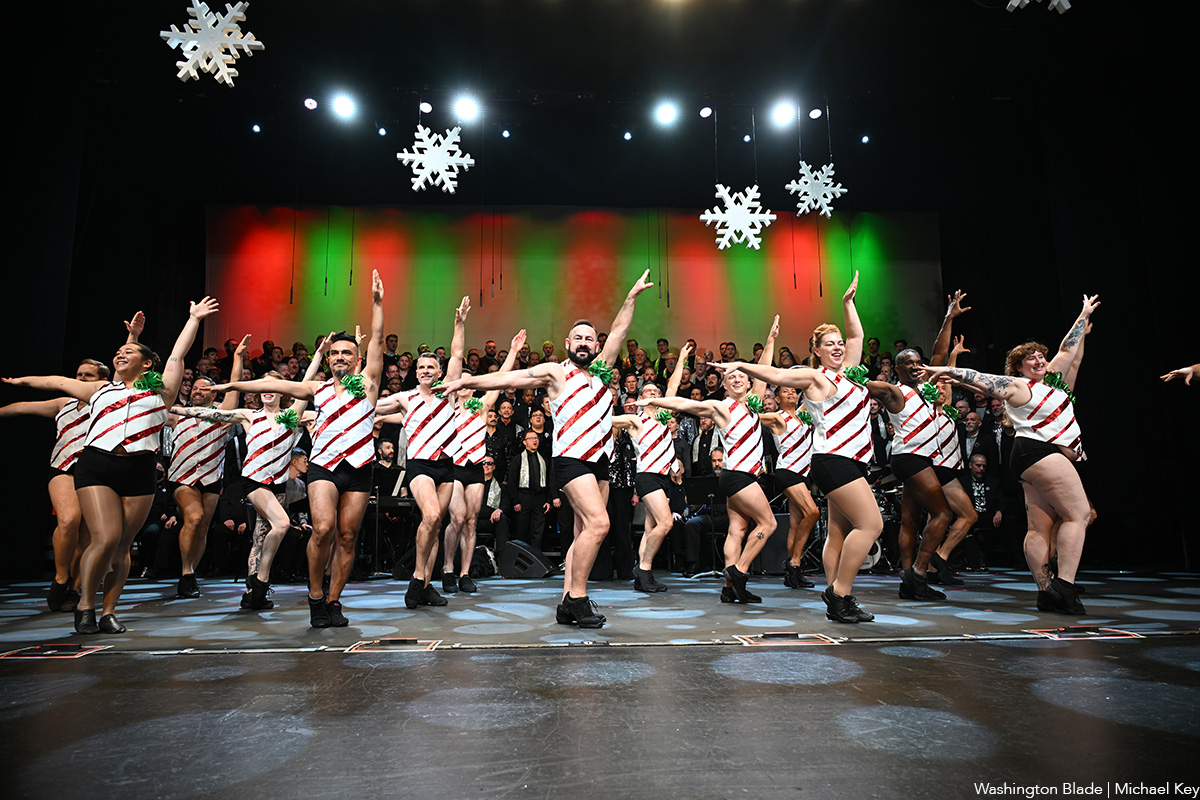
The Gay Men’s Chorus of Washington perform “The Holiday Show” at Lincoln Theatre (1215 U St., N.W.). Visit gmcw.org for tickets and showtimes.
(Washington Blade photos by Michael Key)
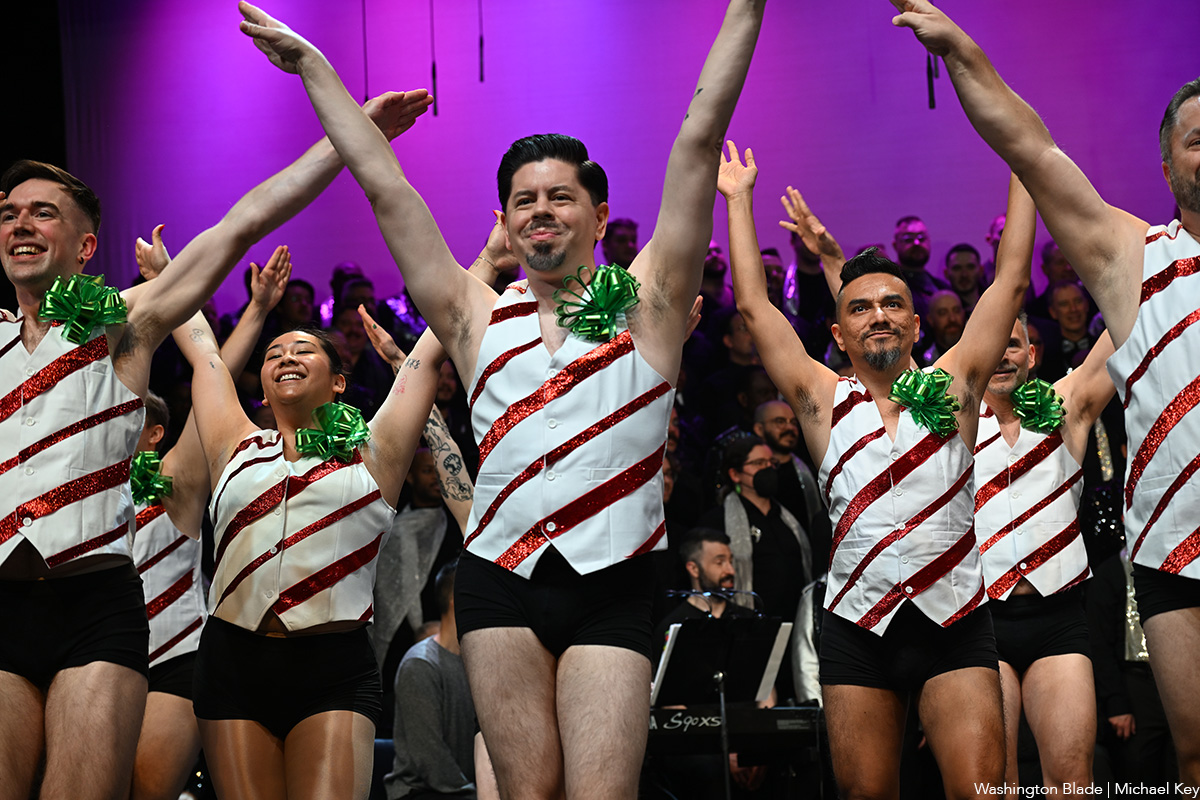


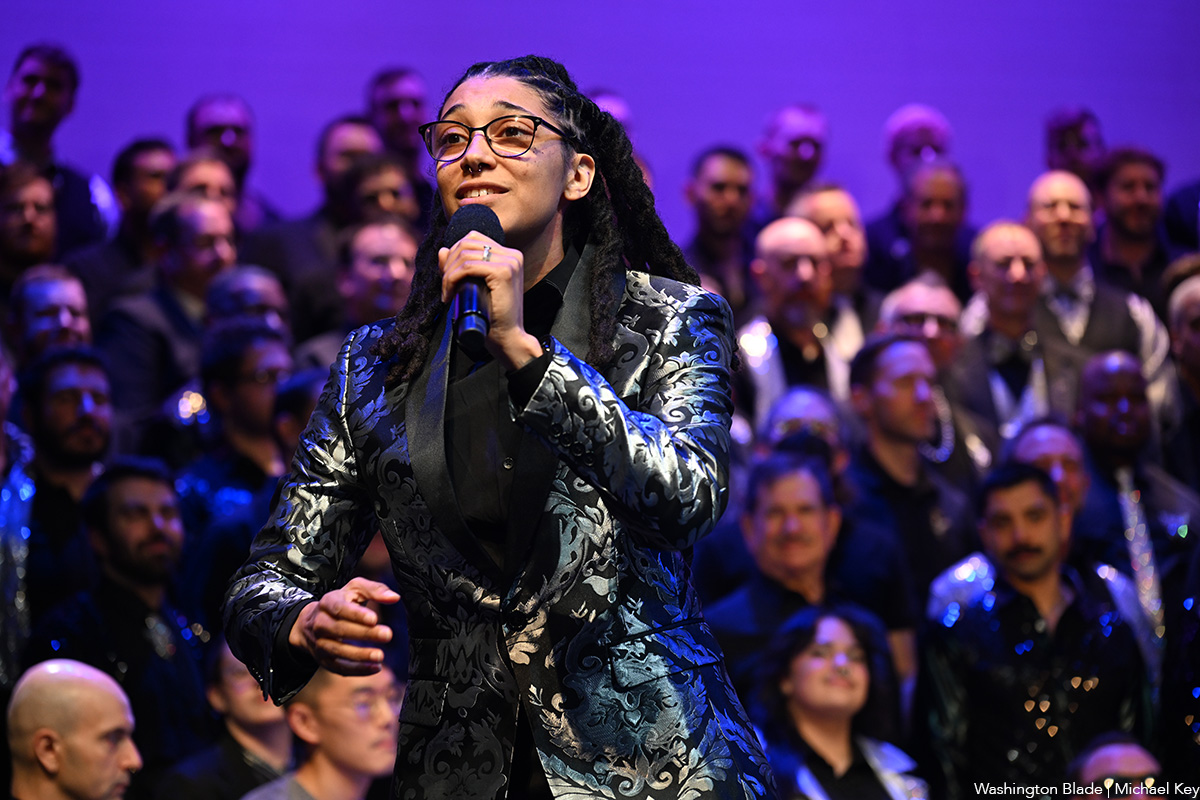
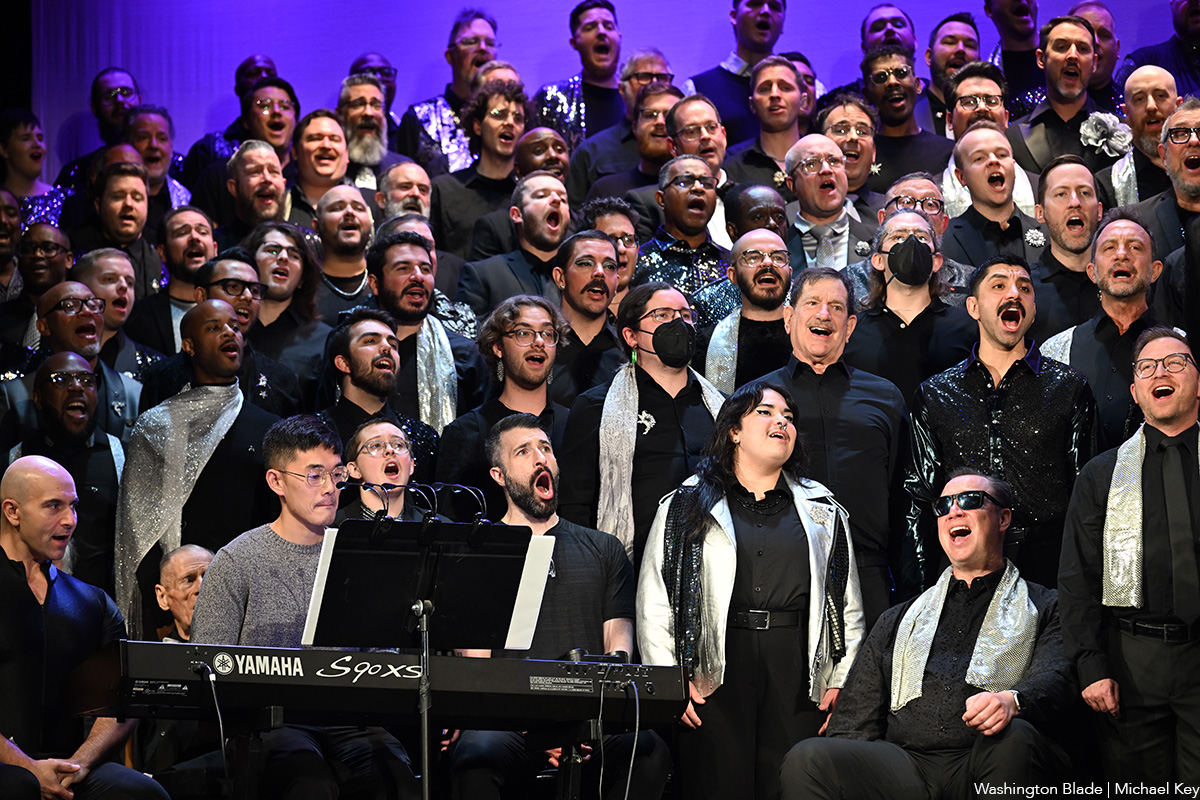
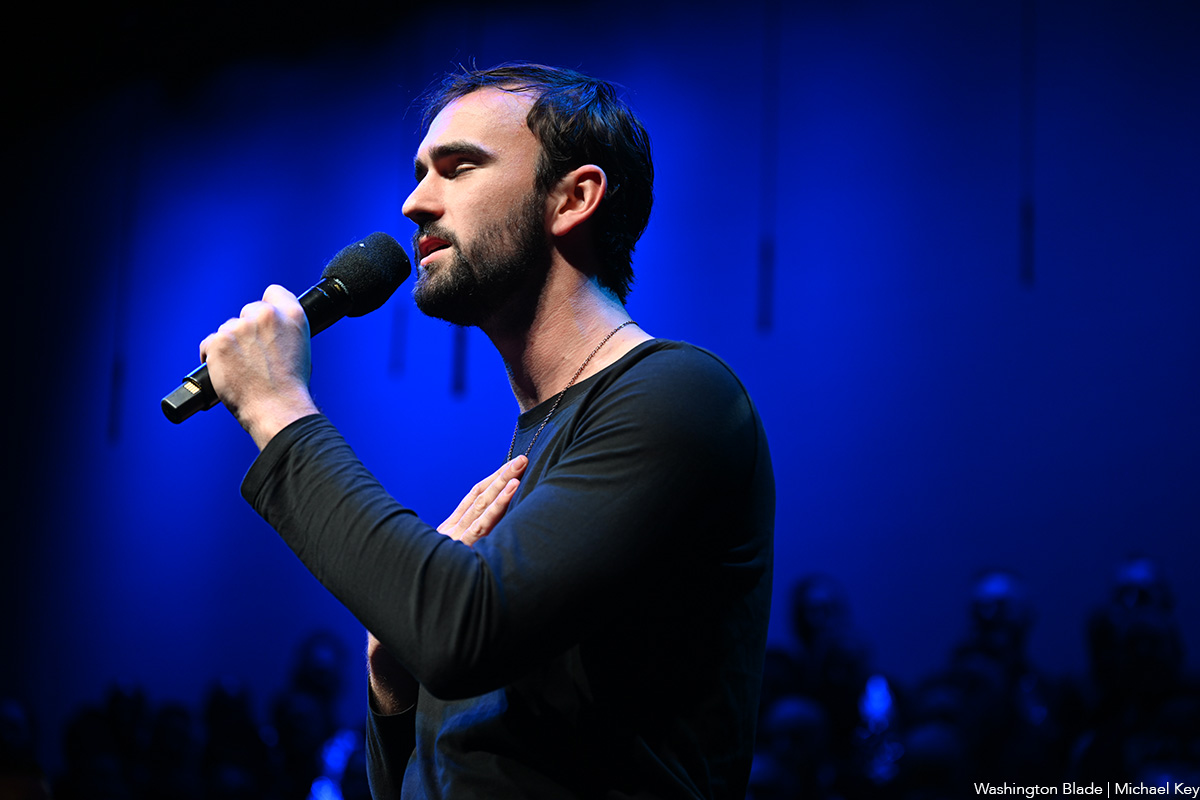
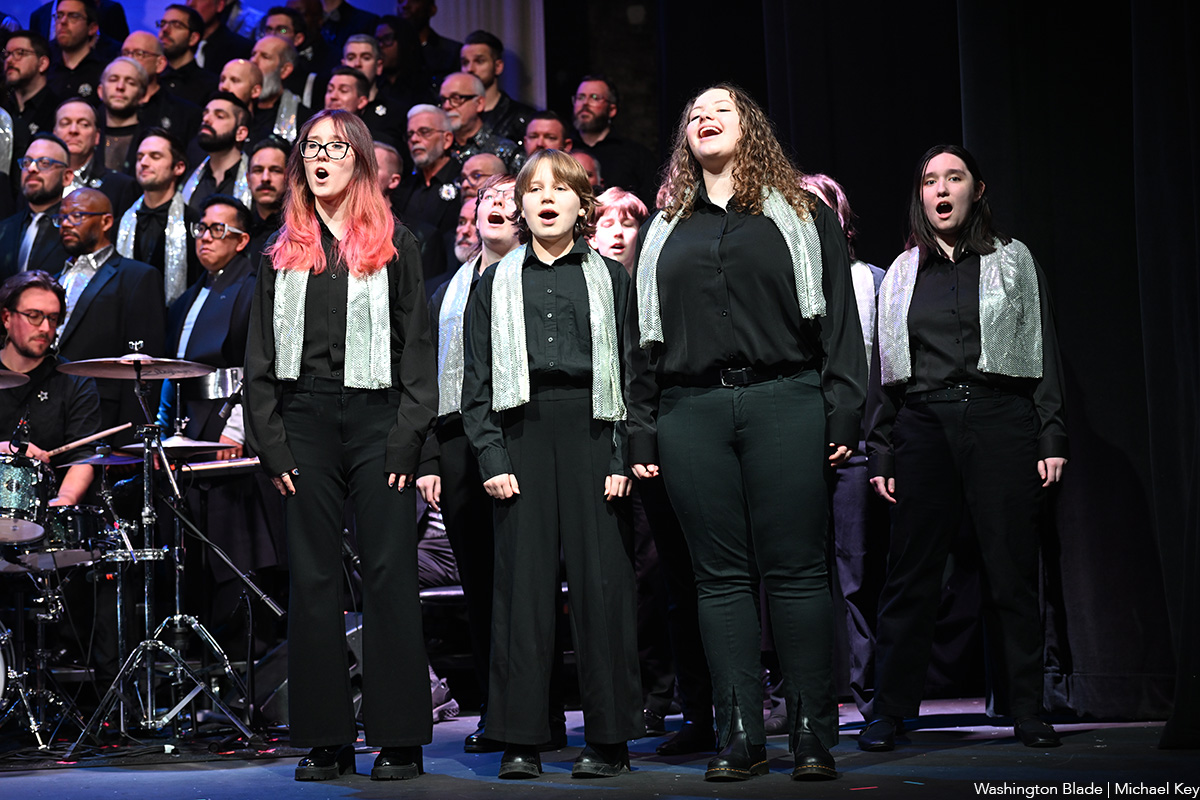

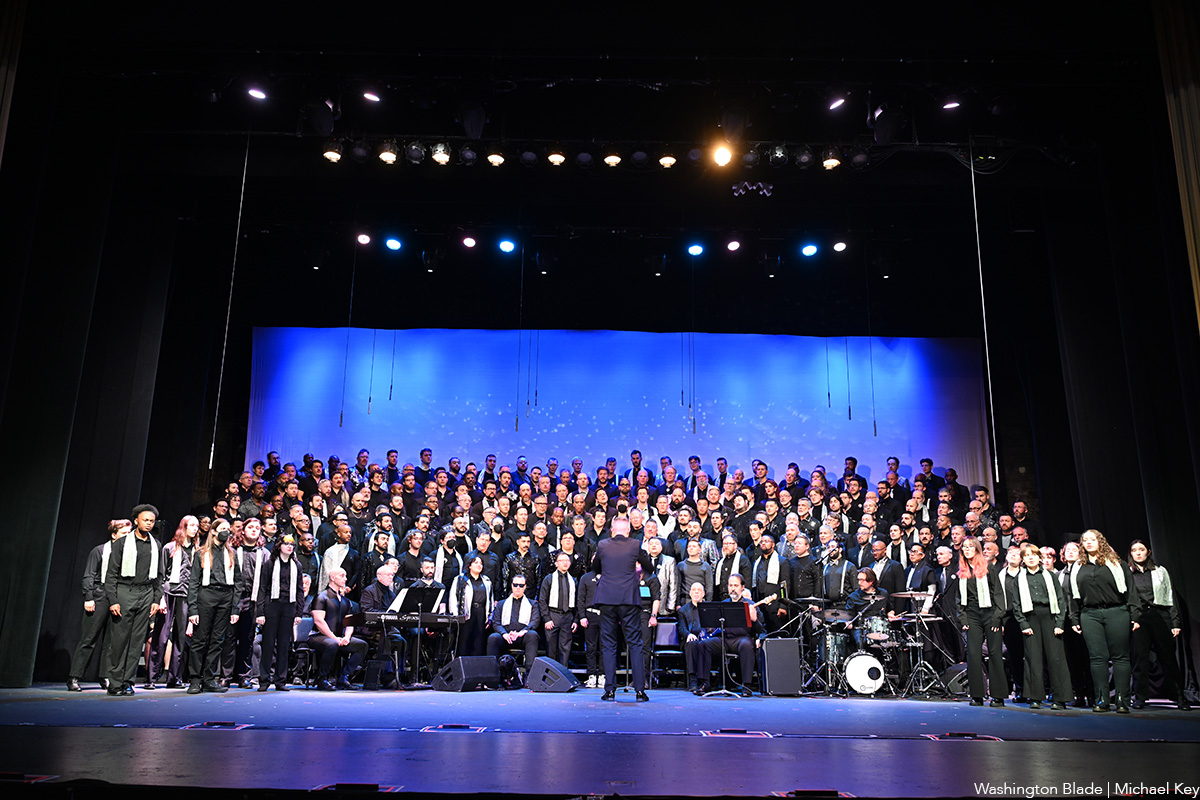
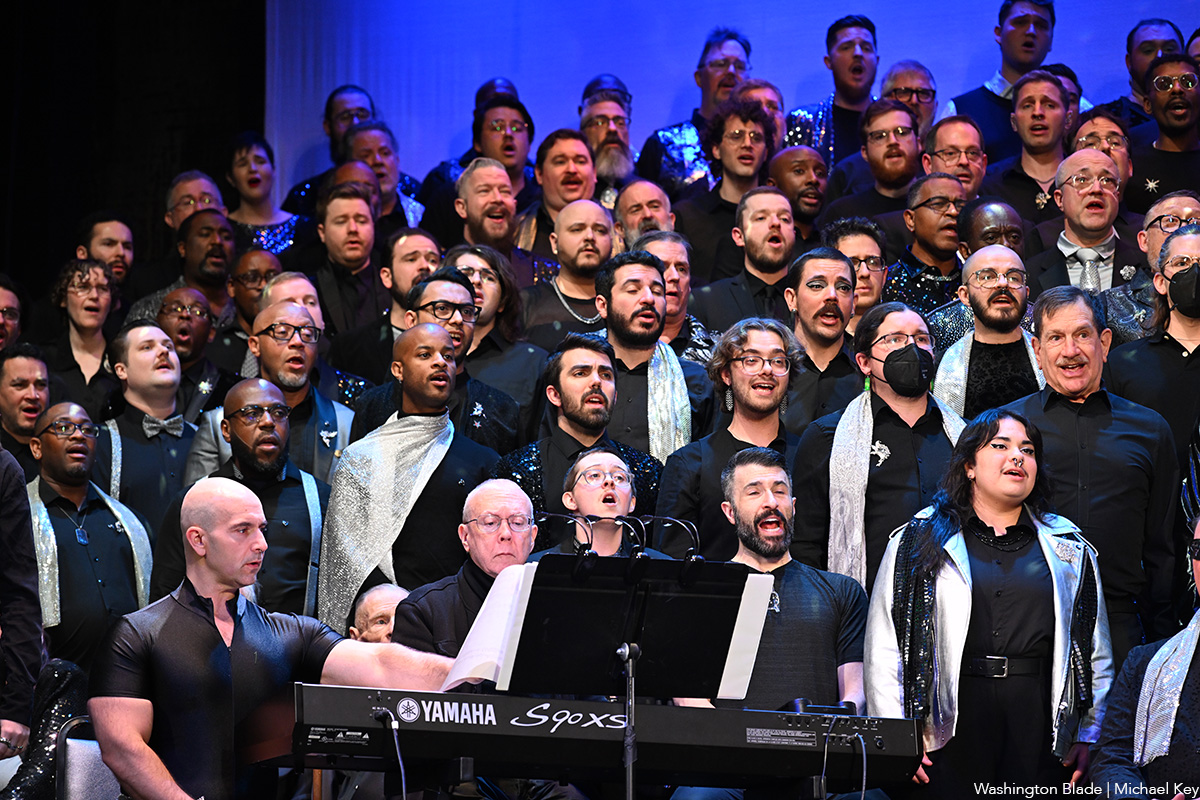
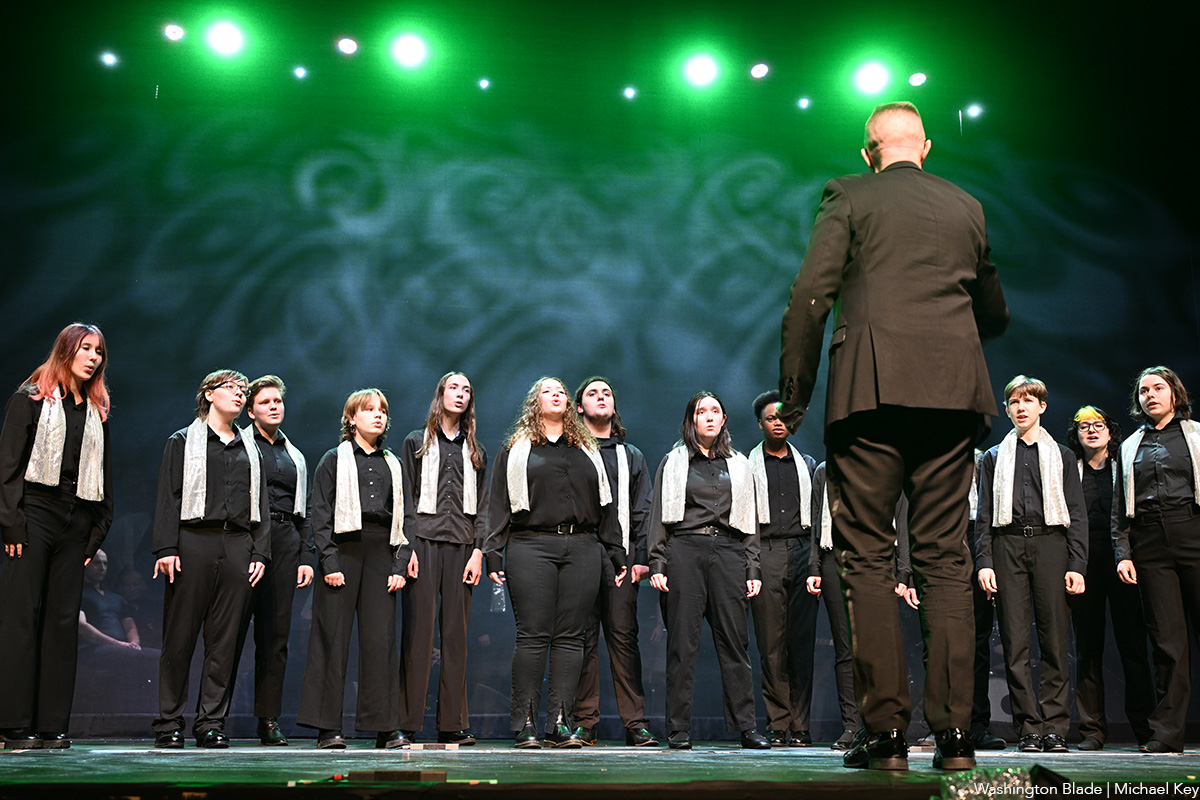
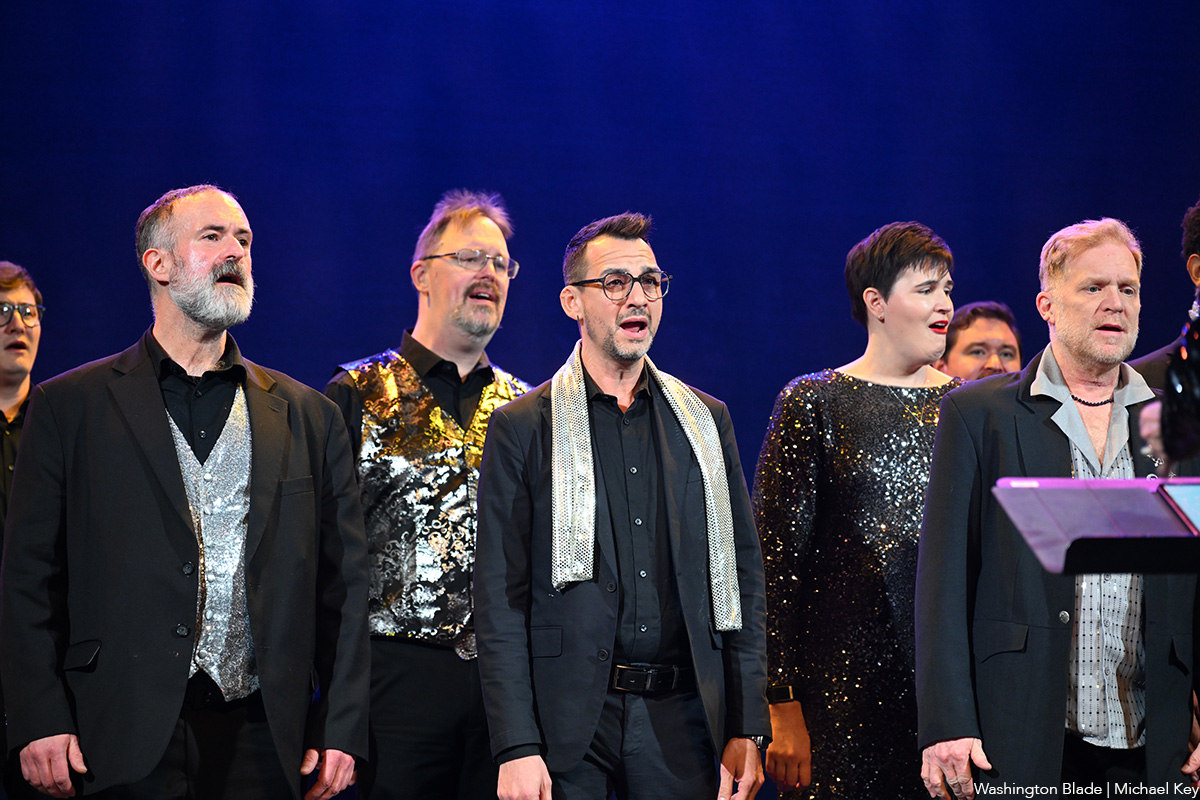
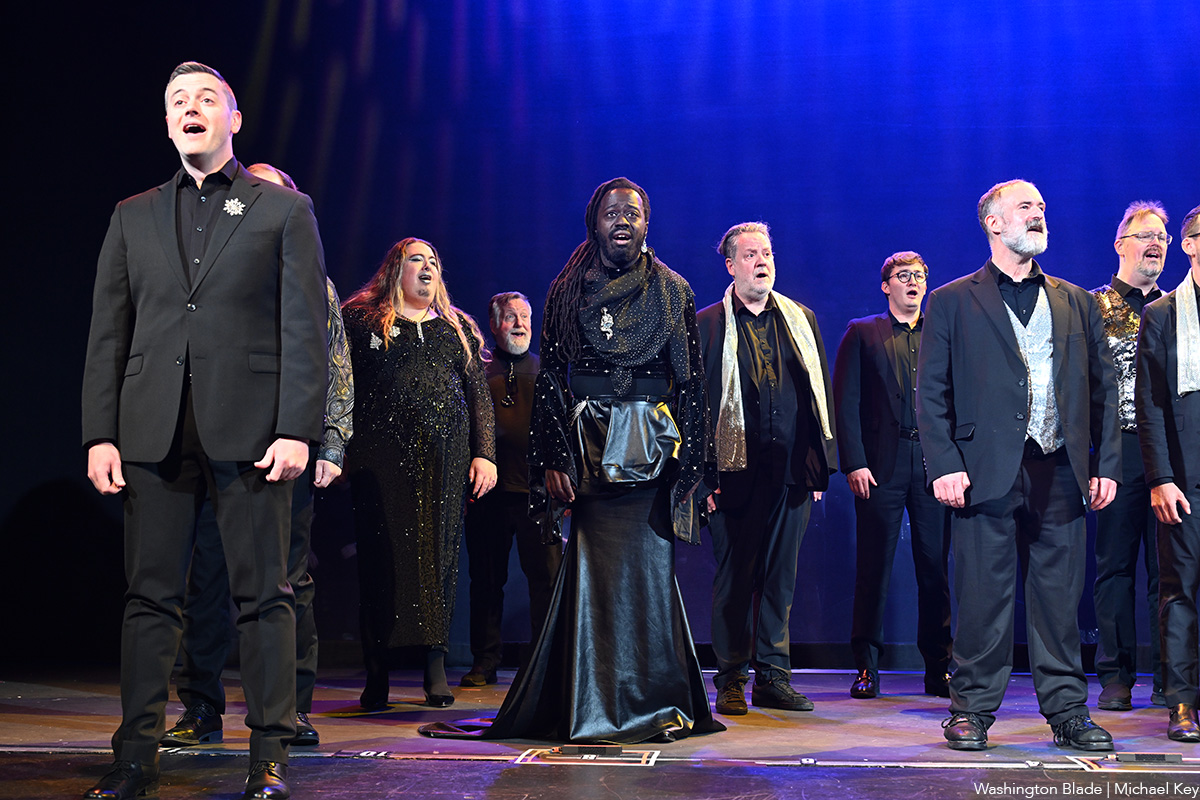
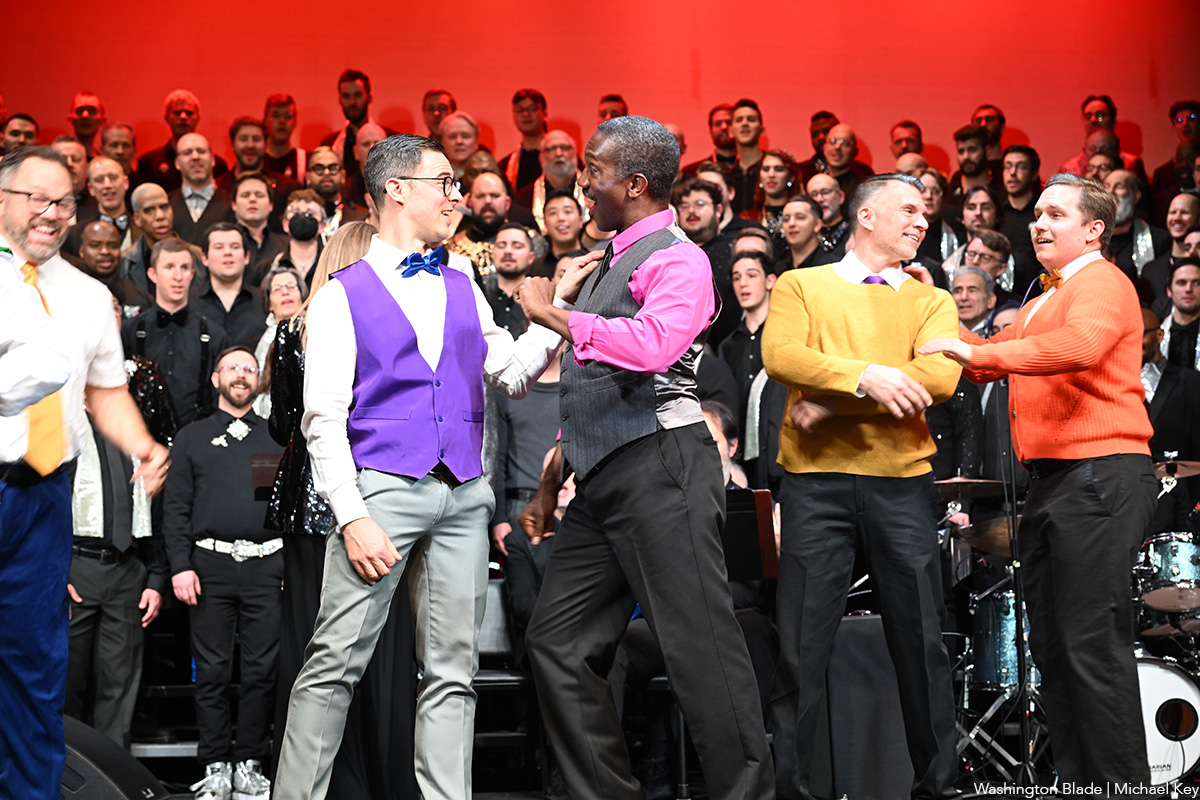
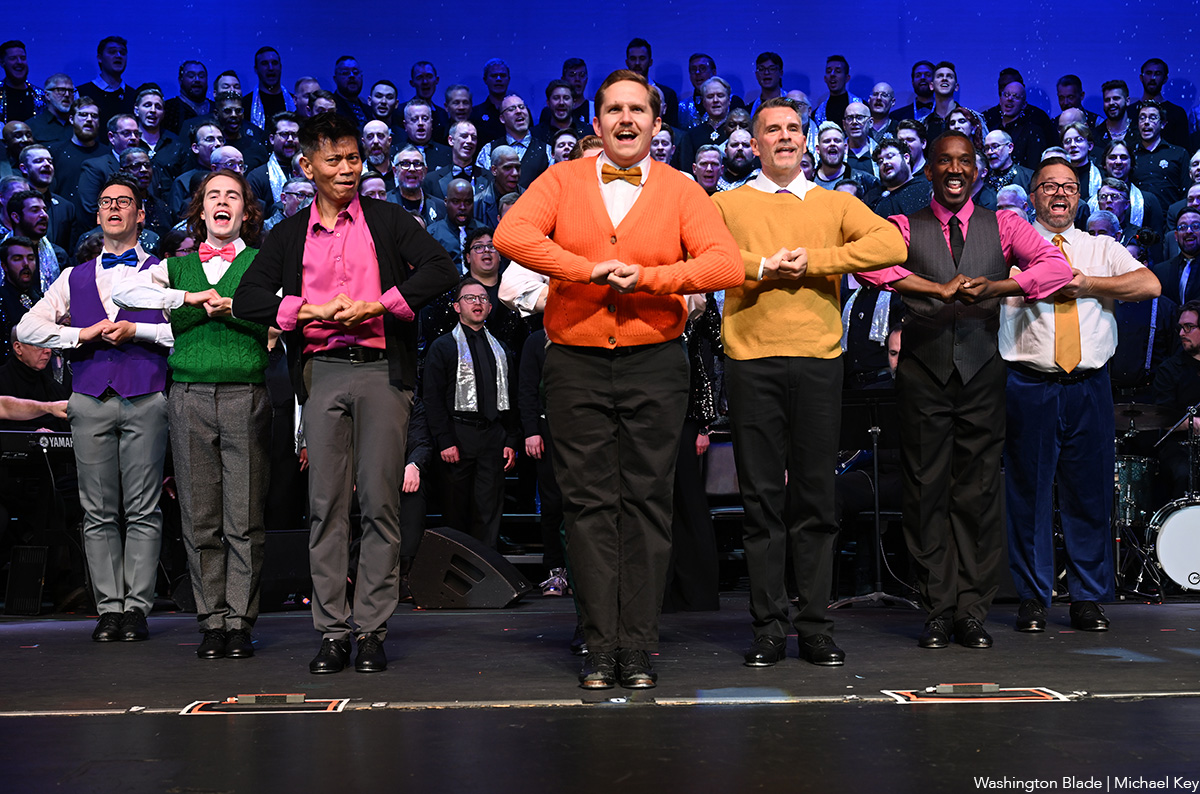
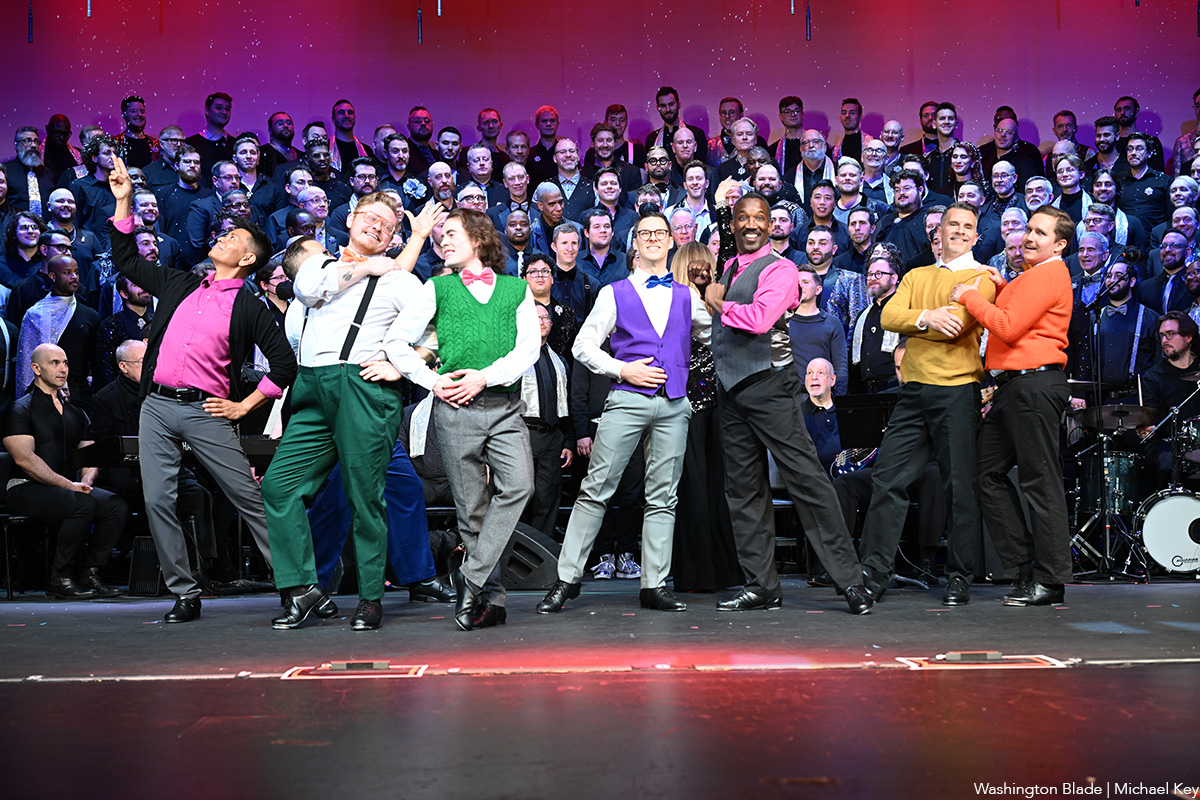
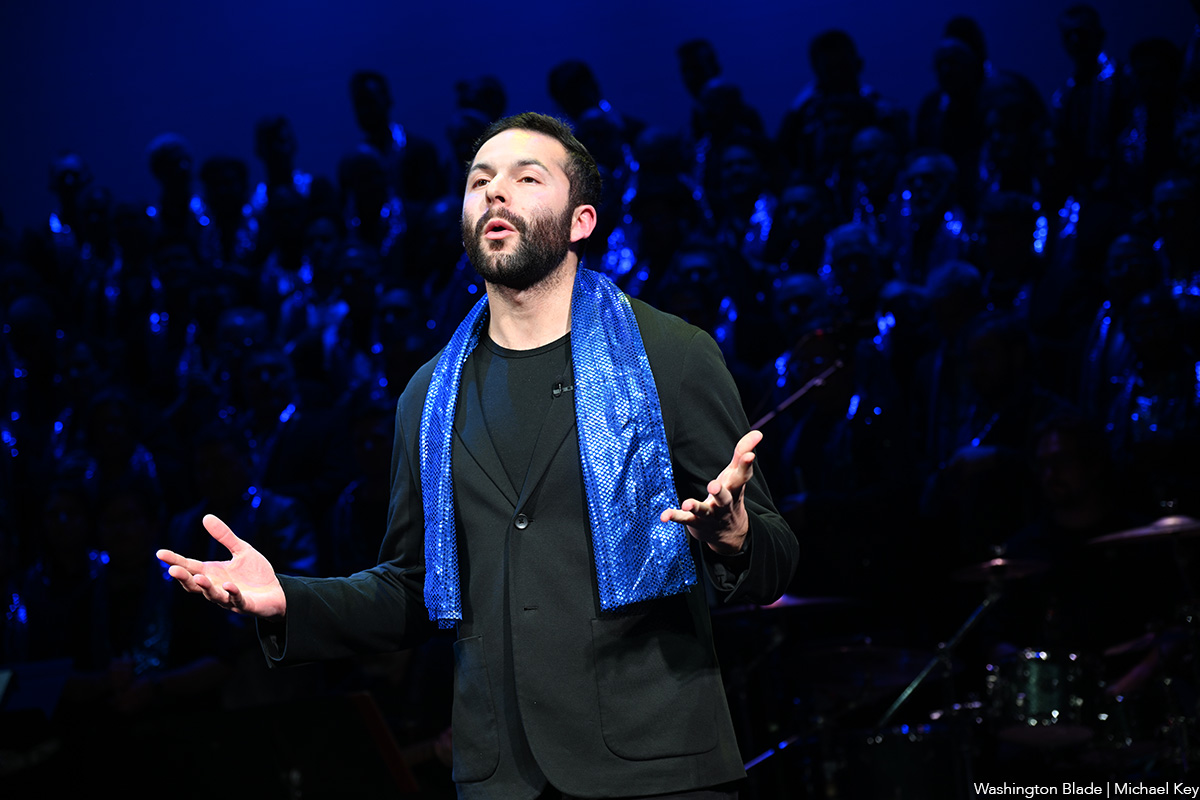
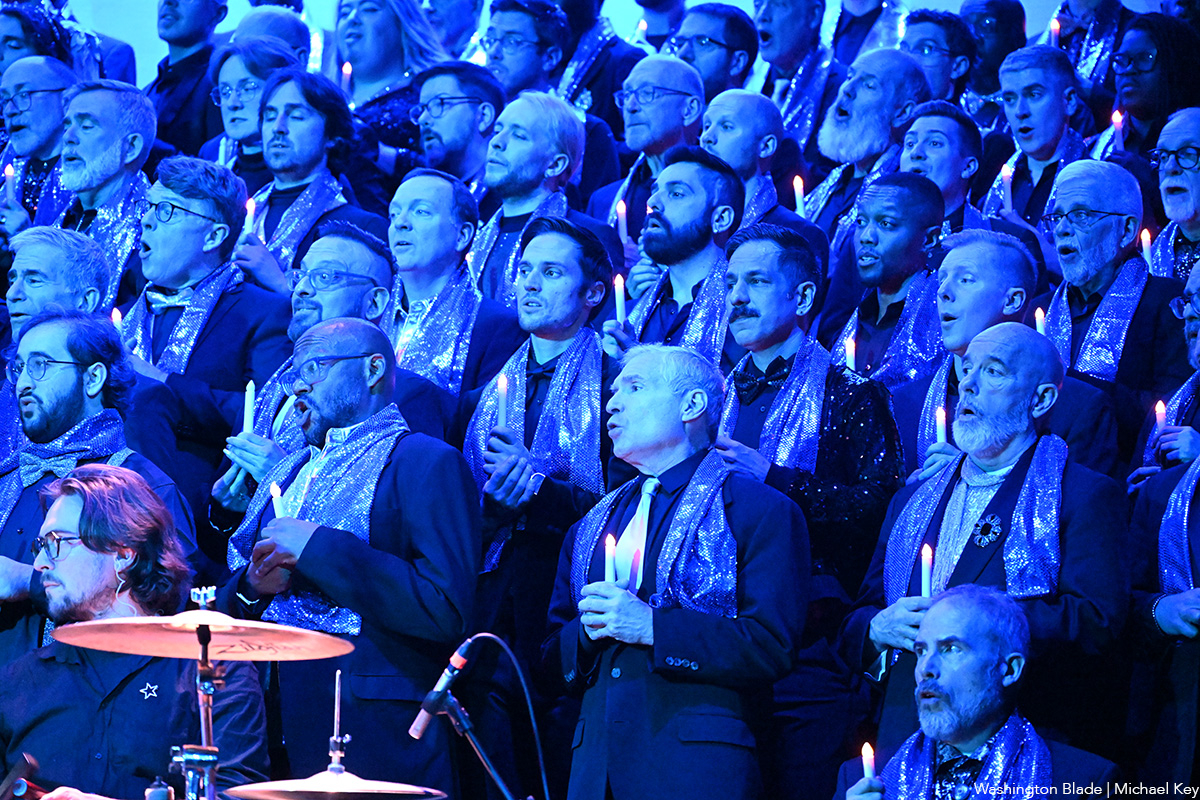
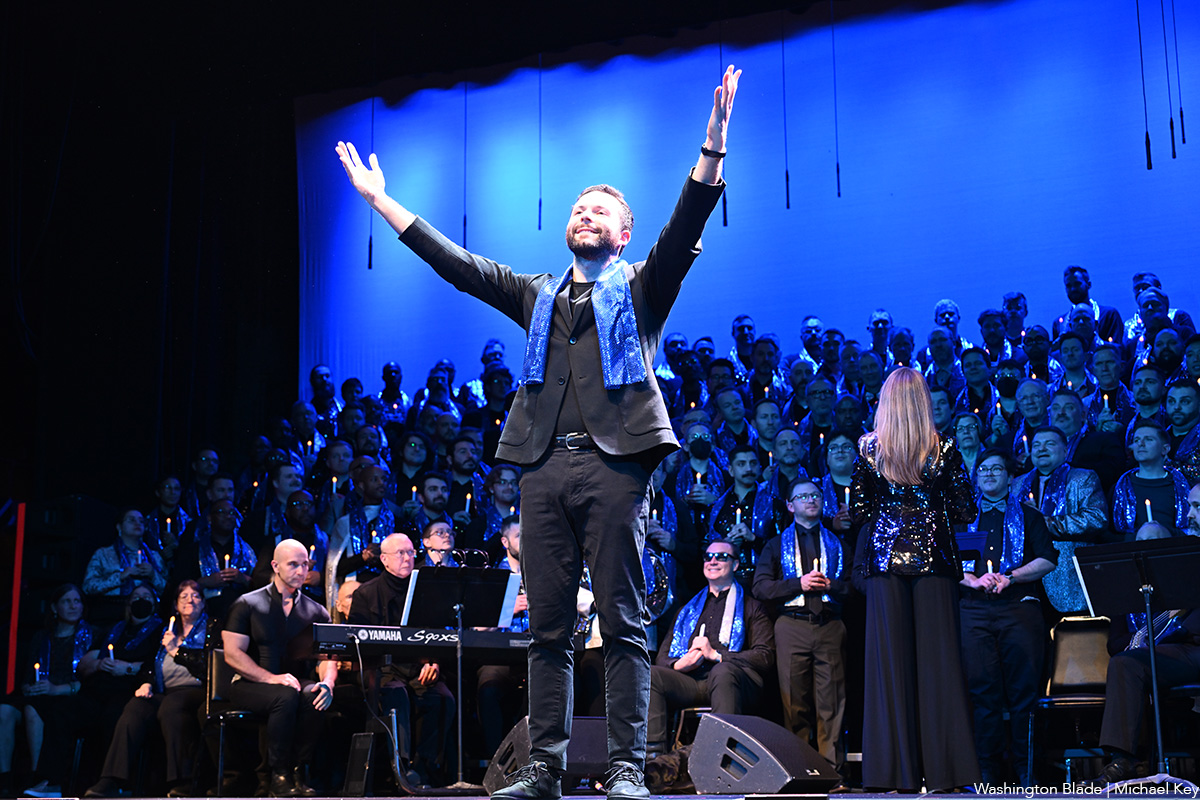
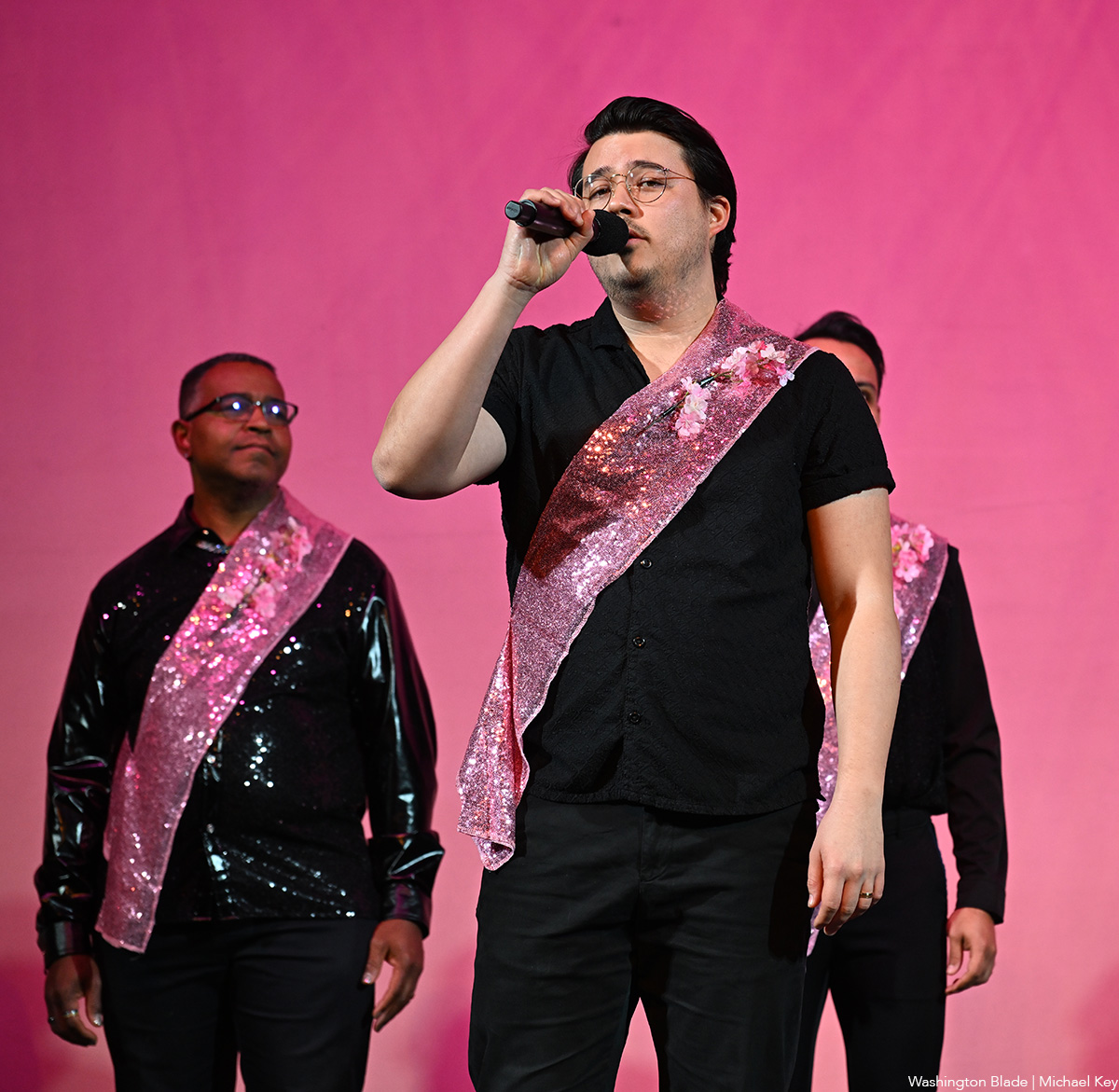
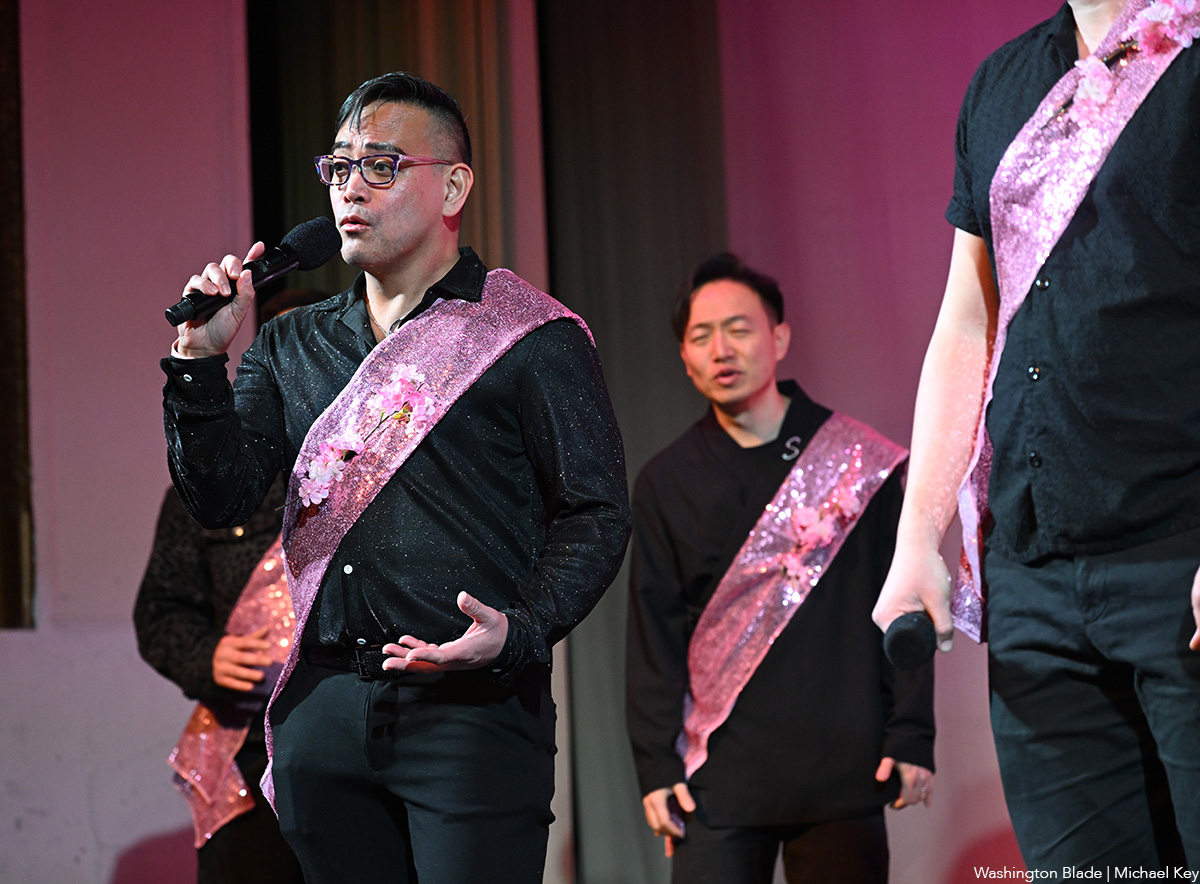
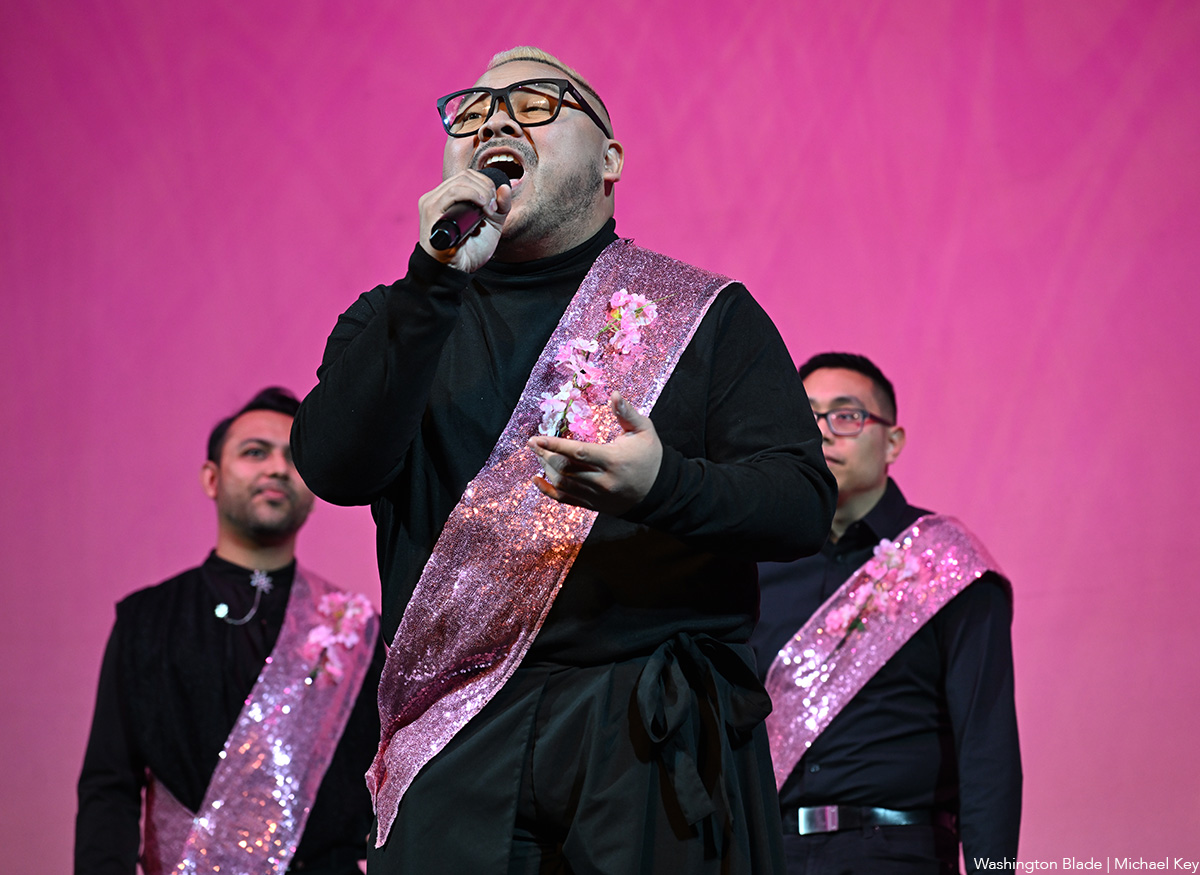

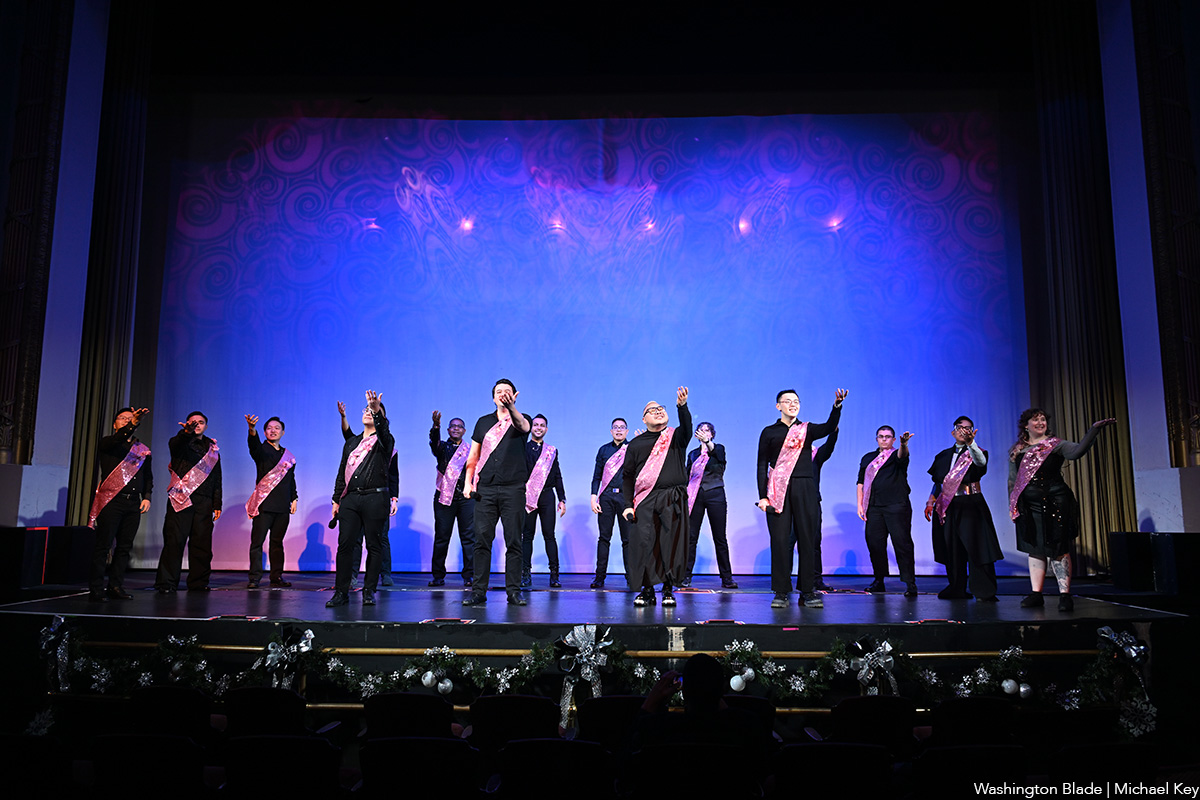
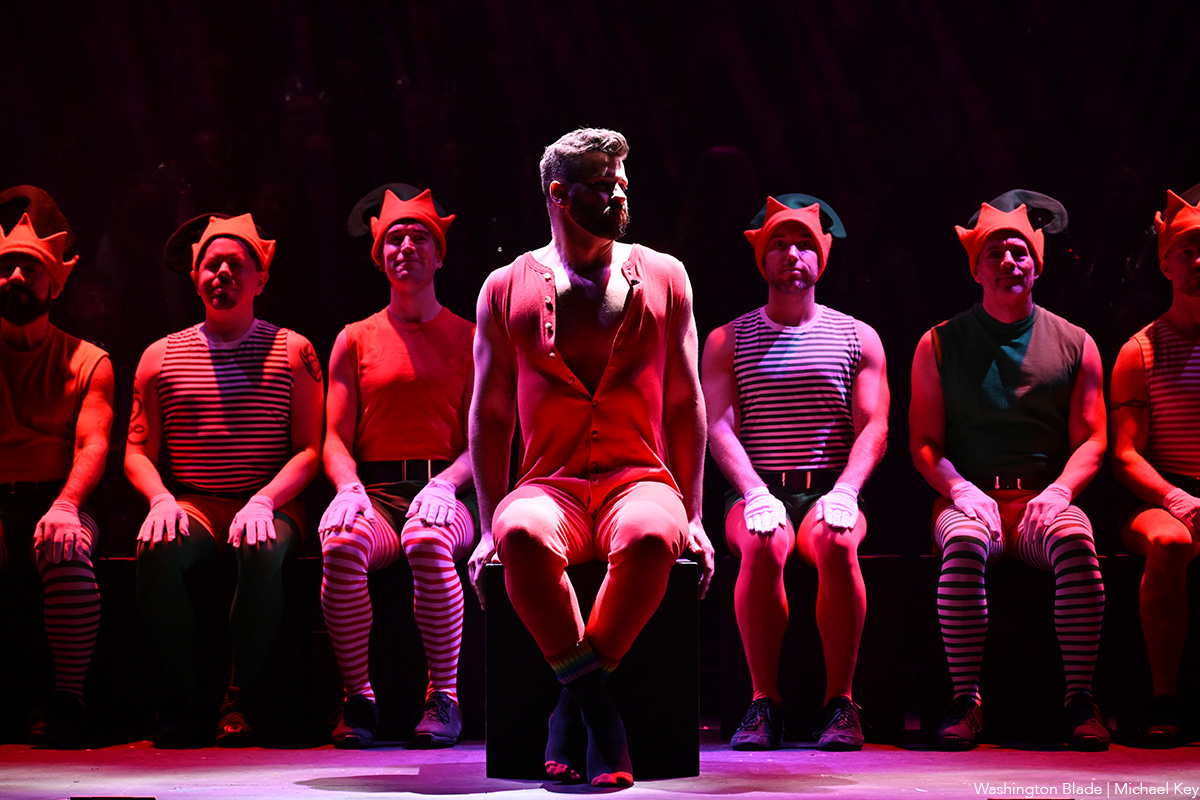

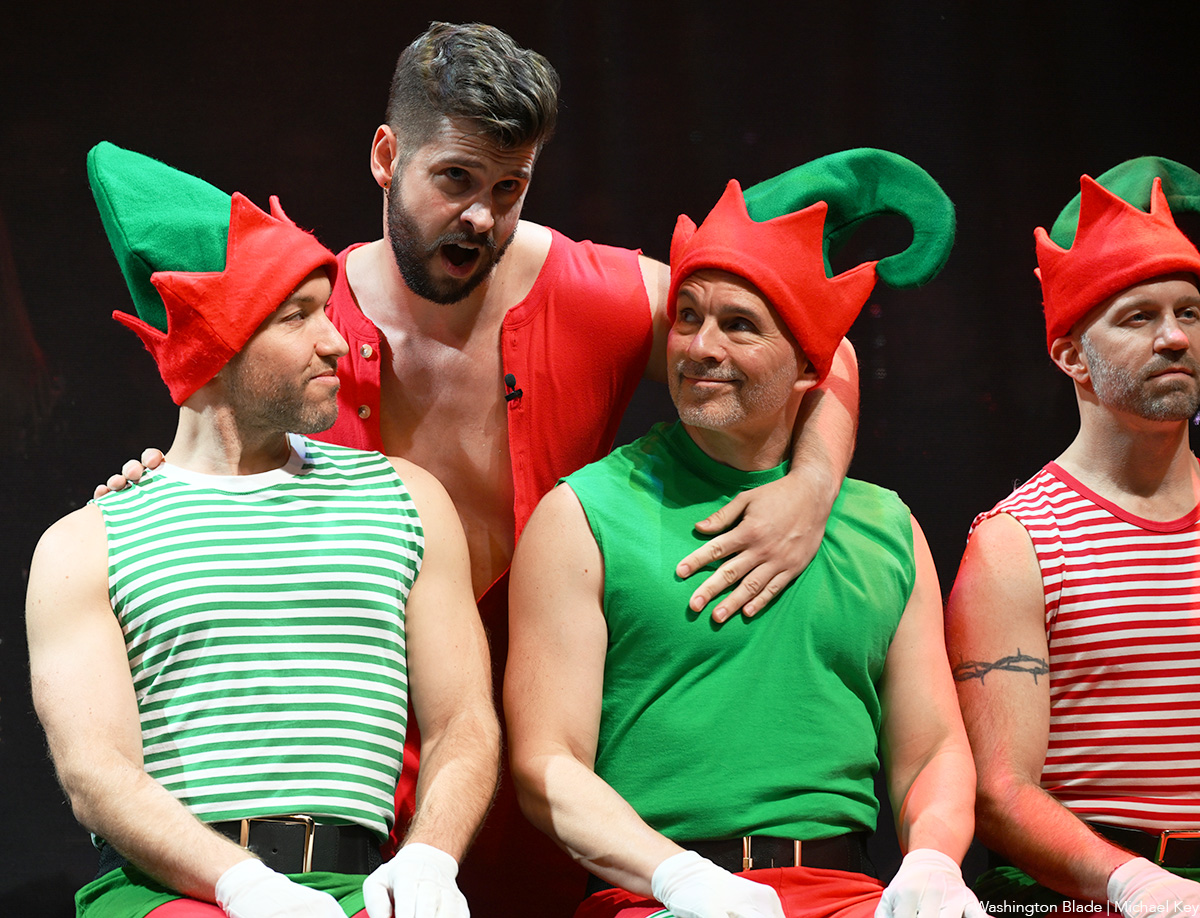

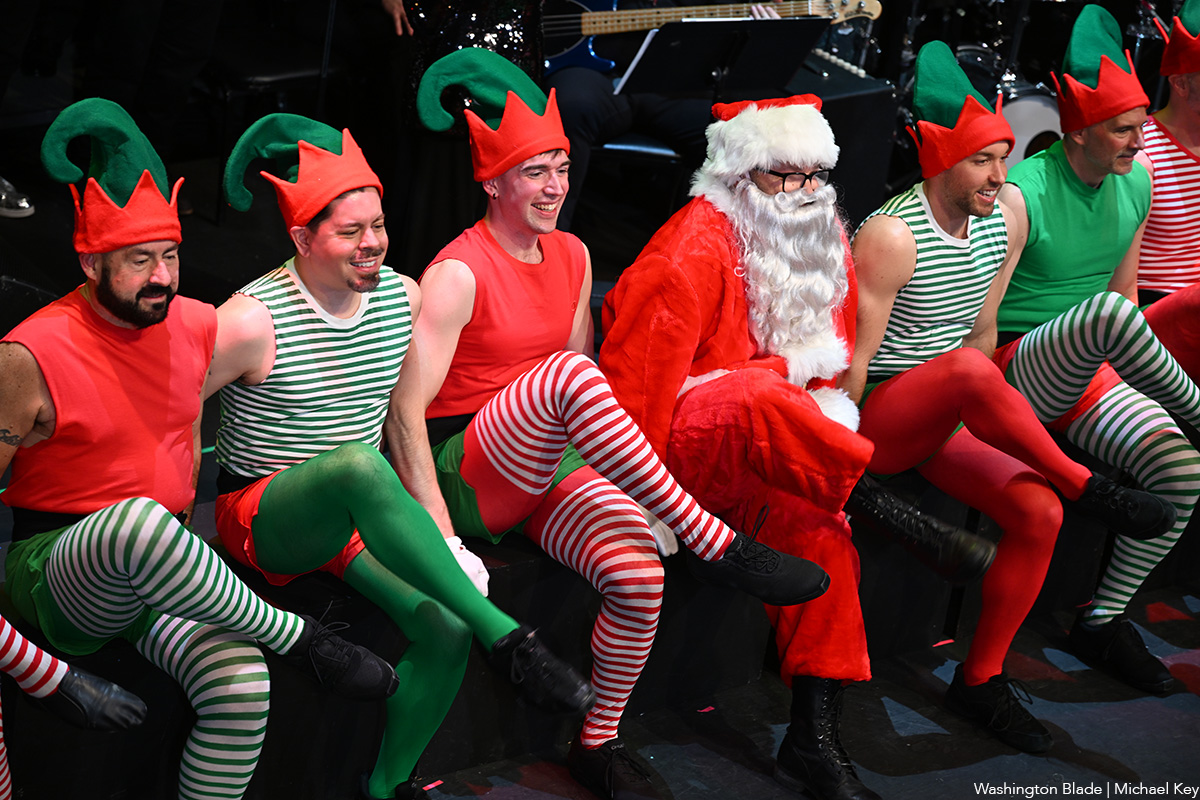
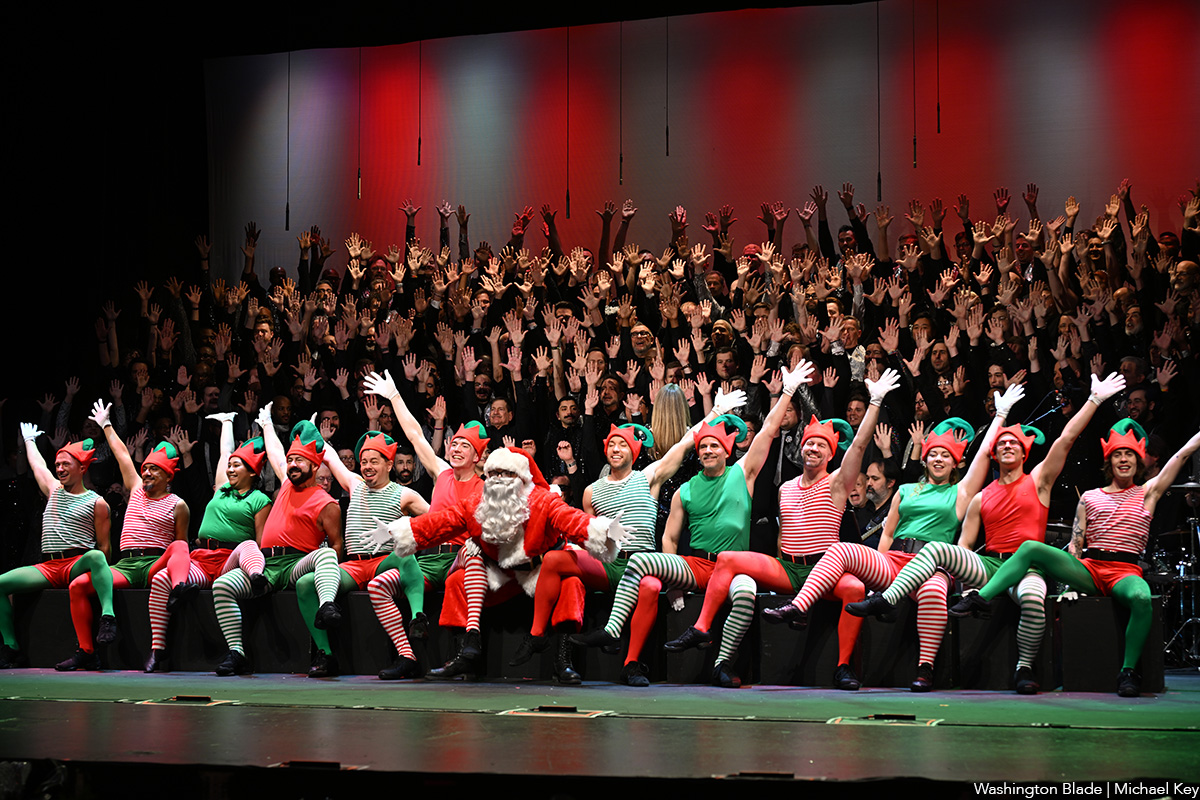
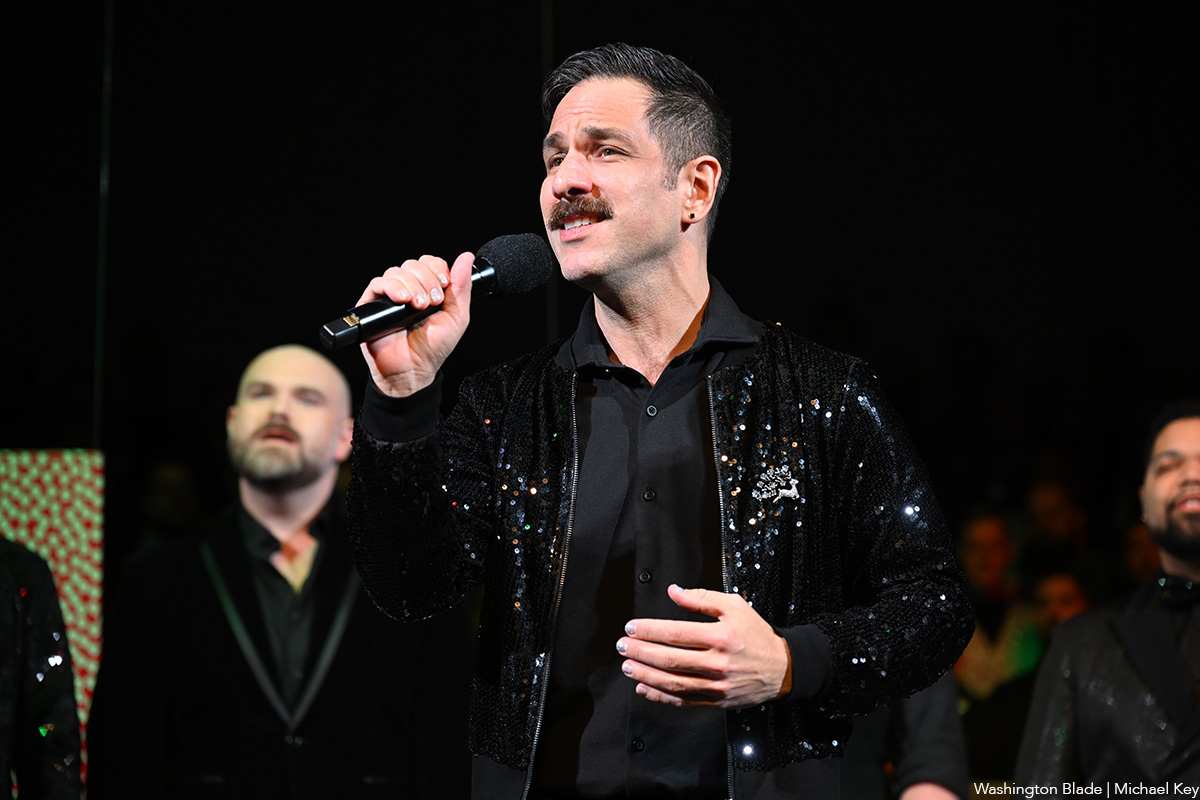
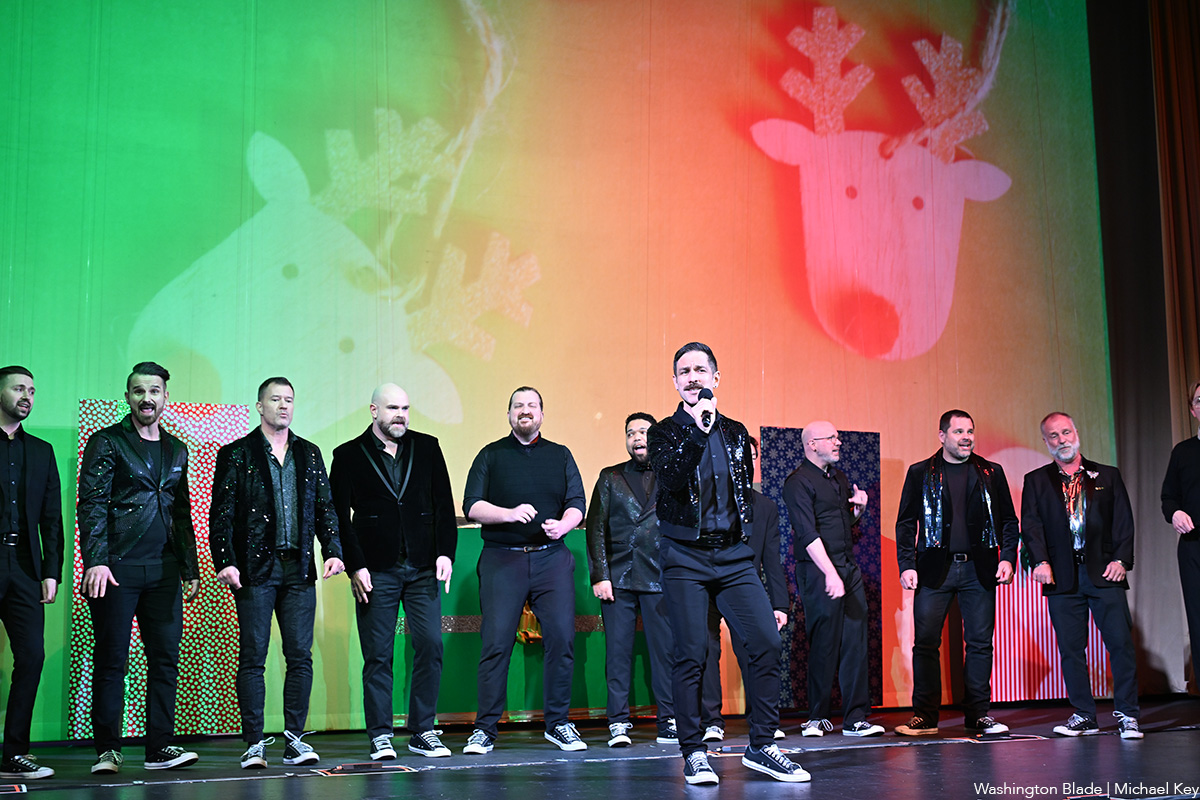
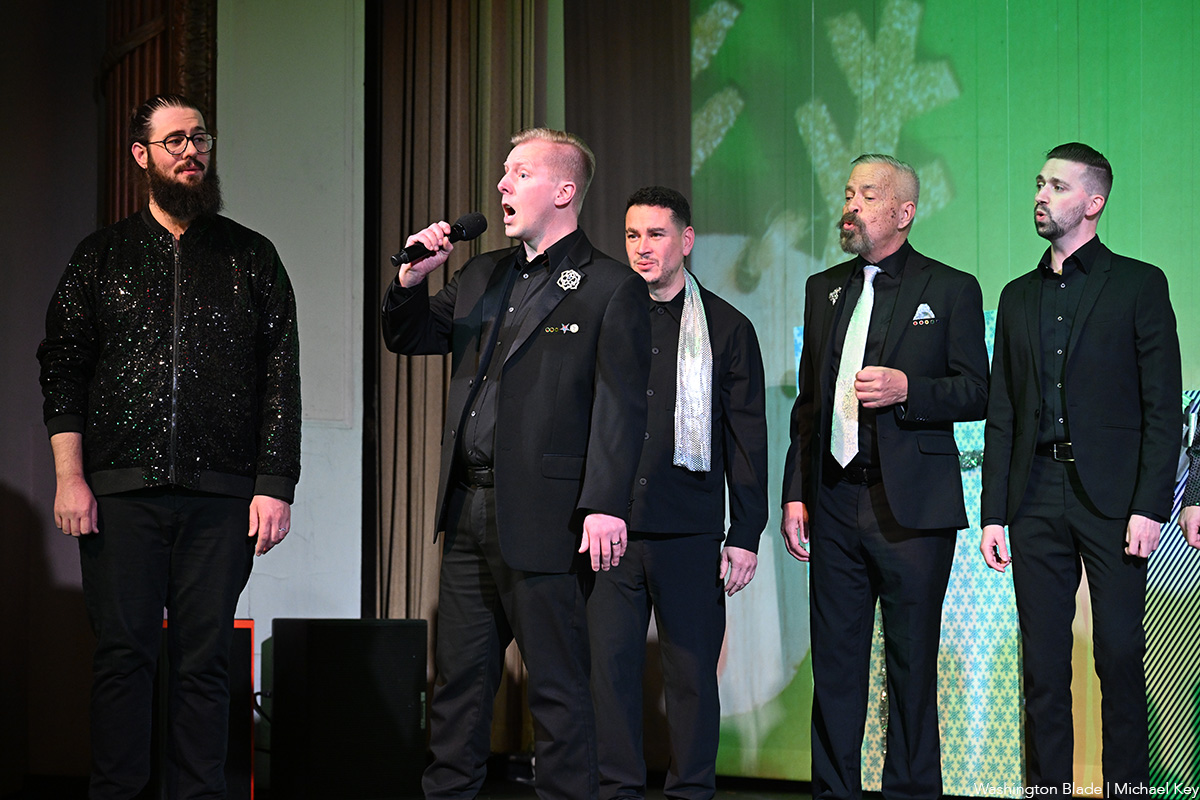
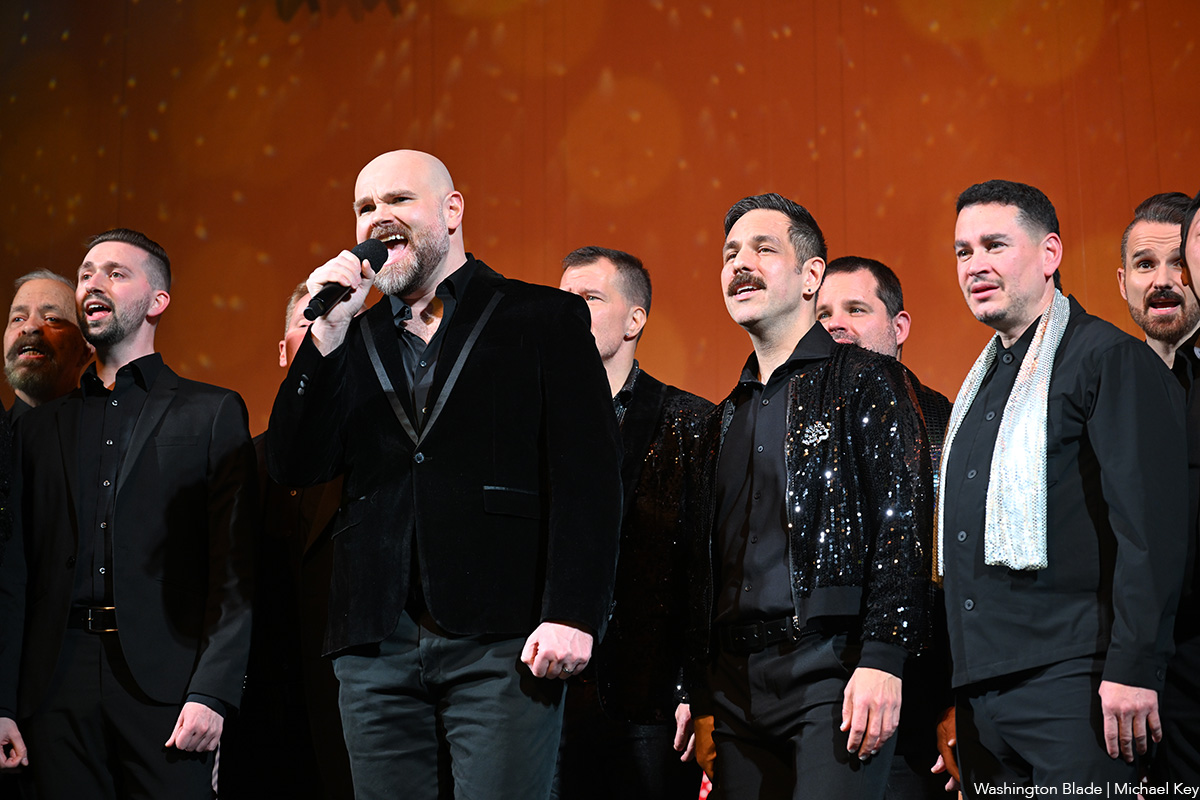
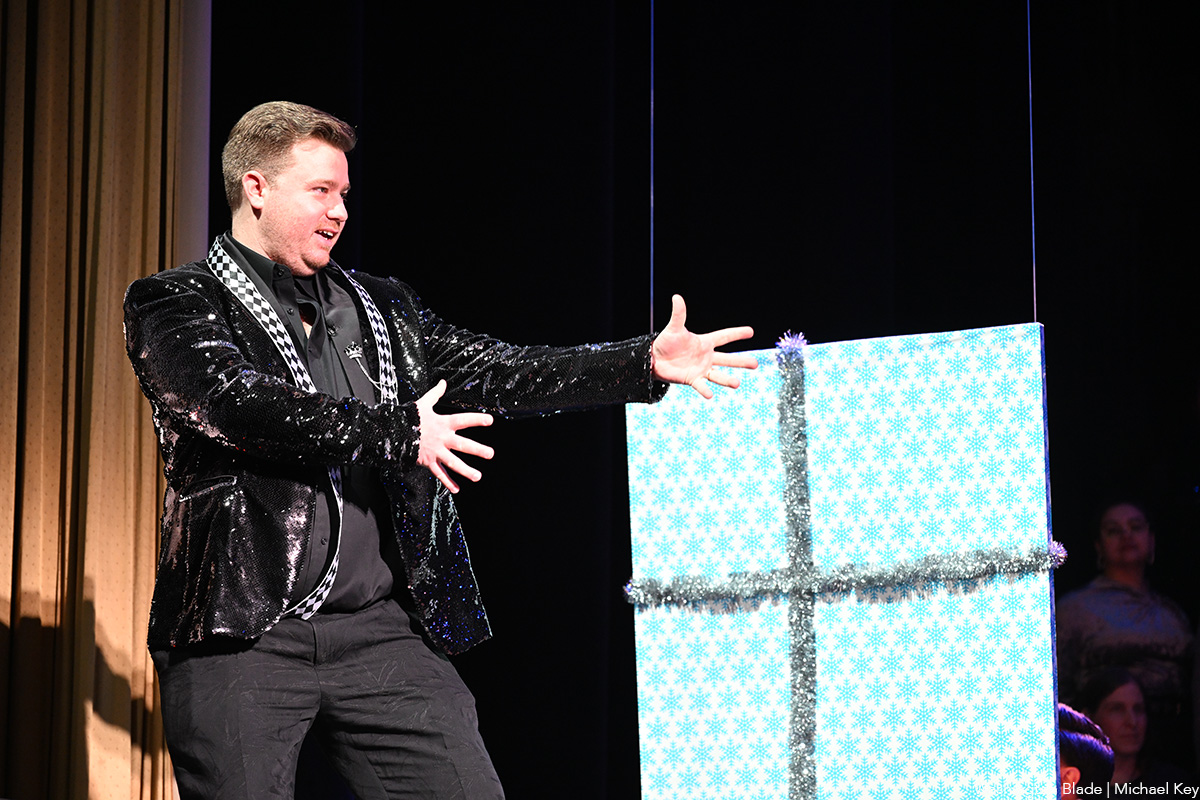
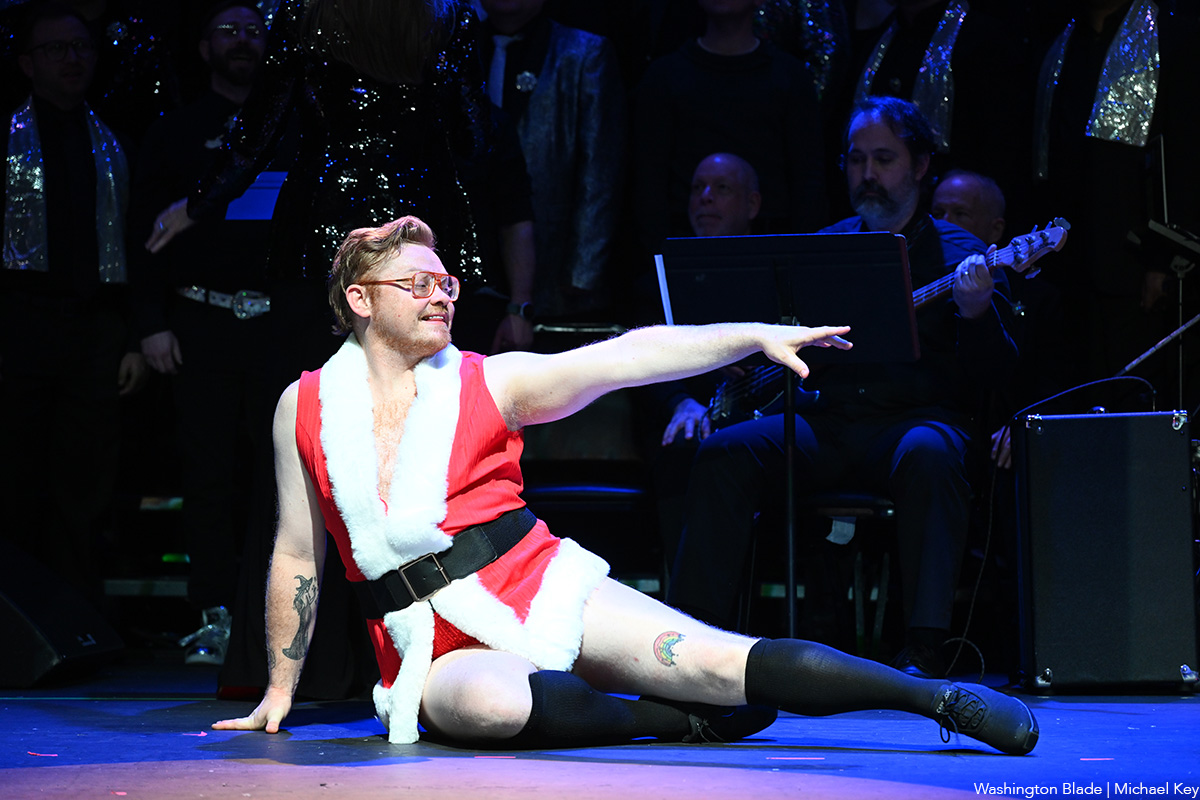
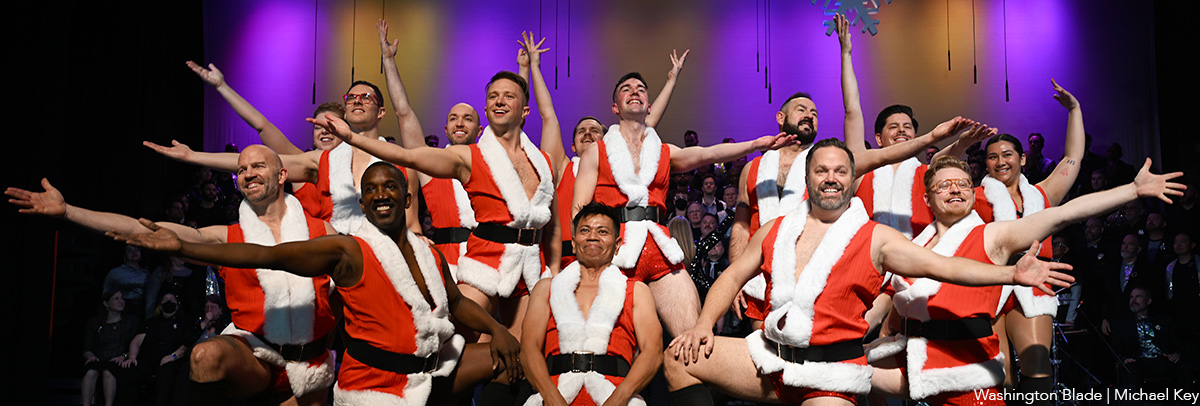
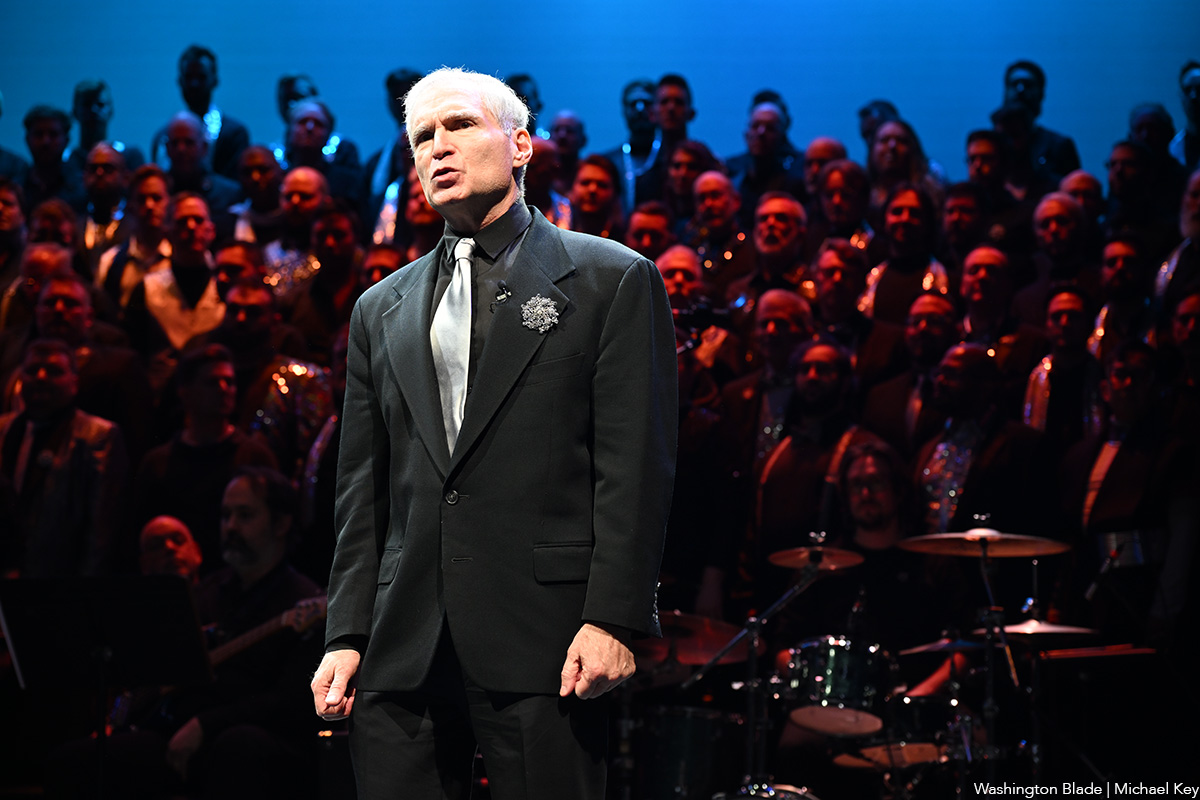
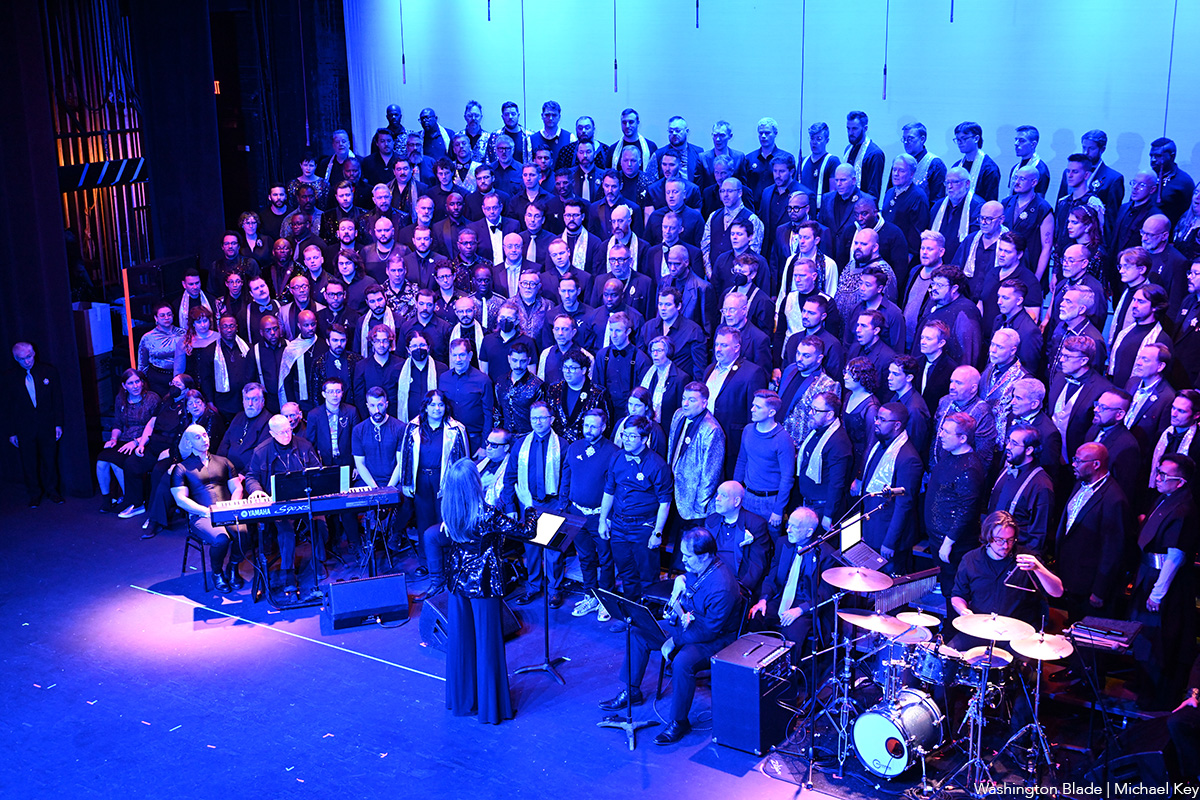
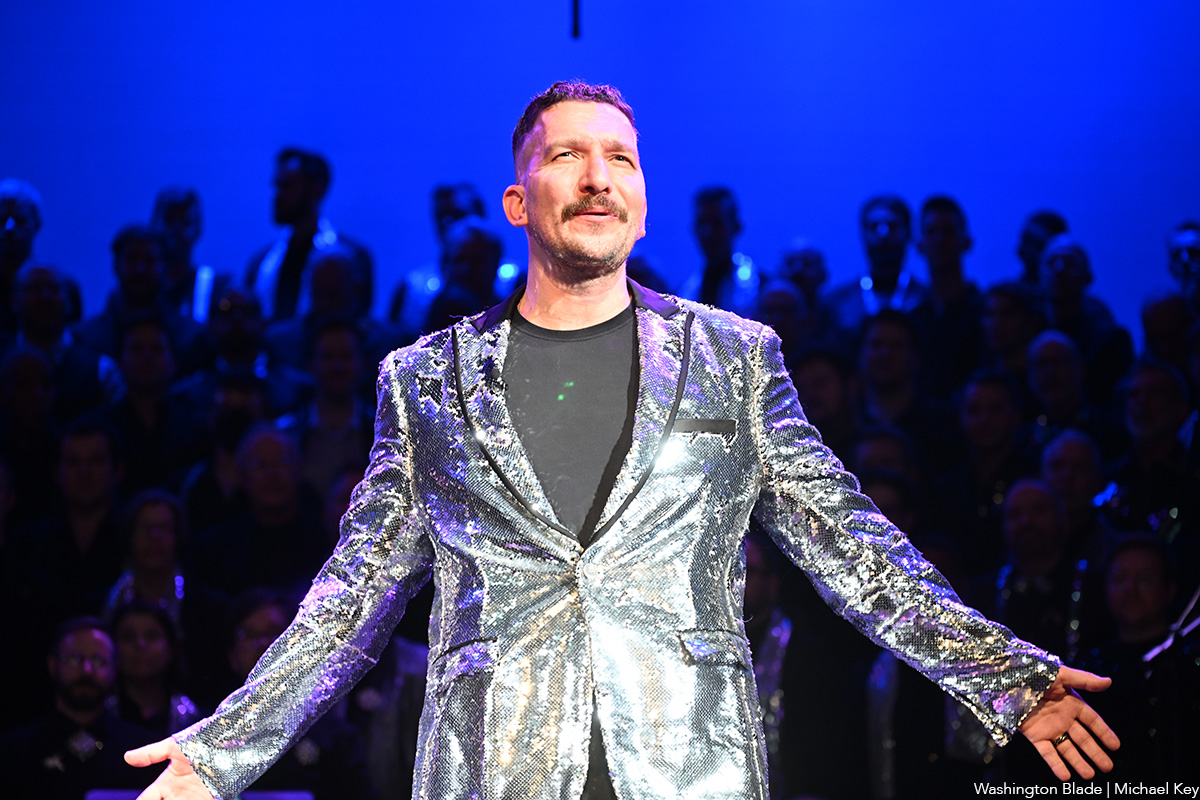
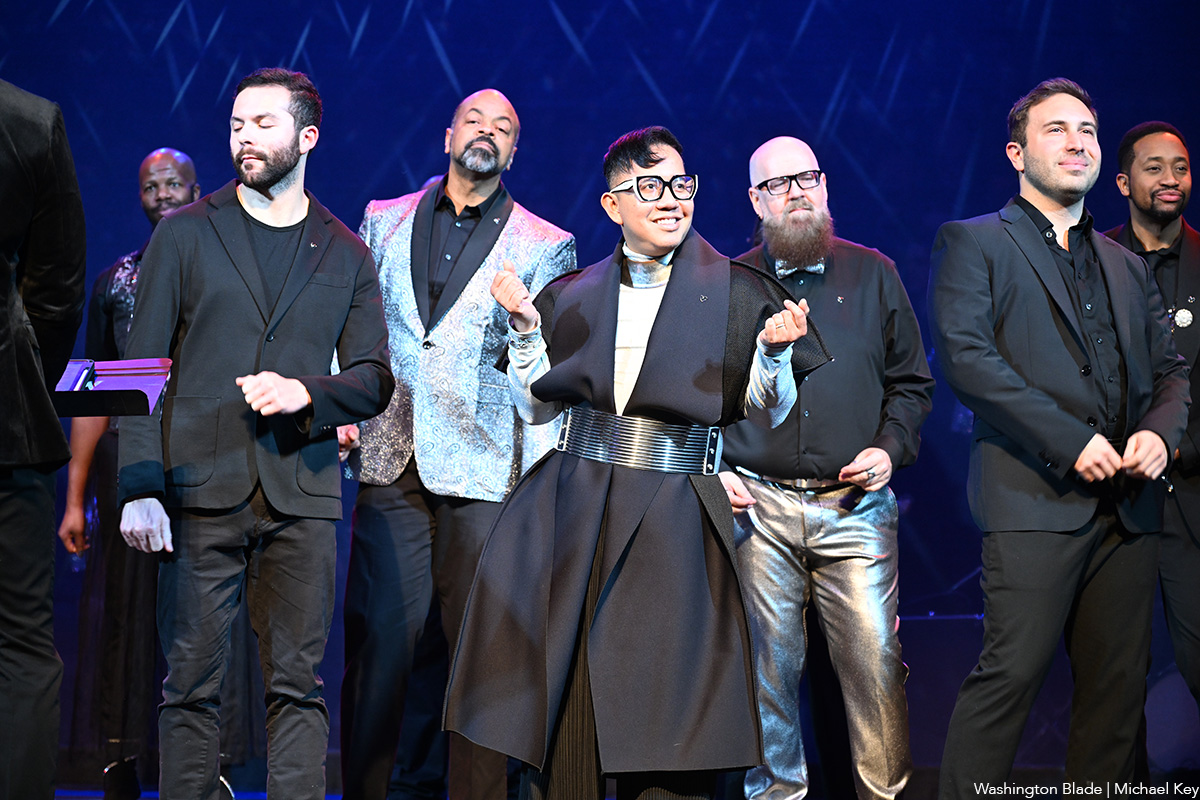
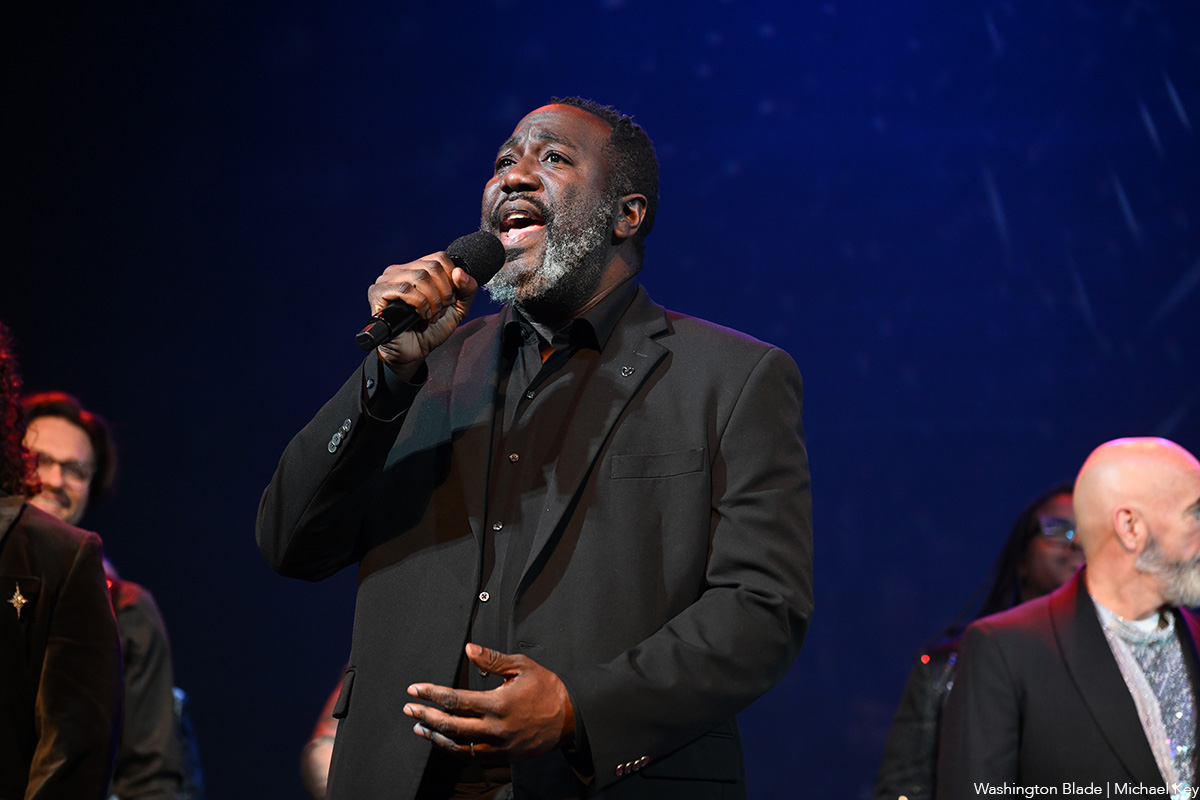

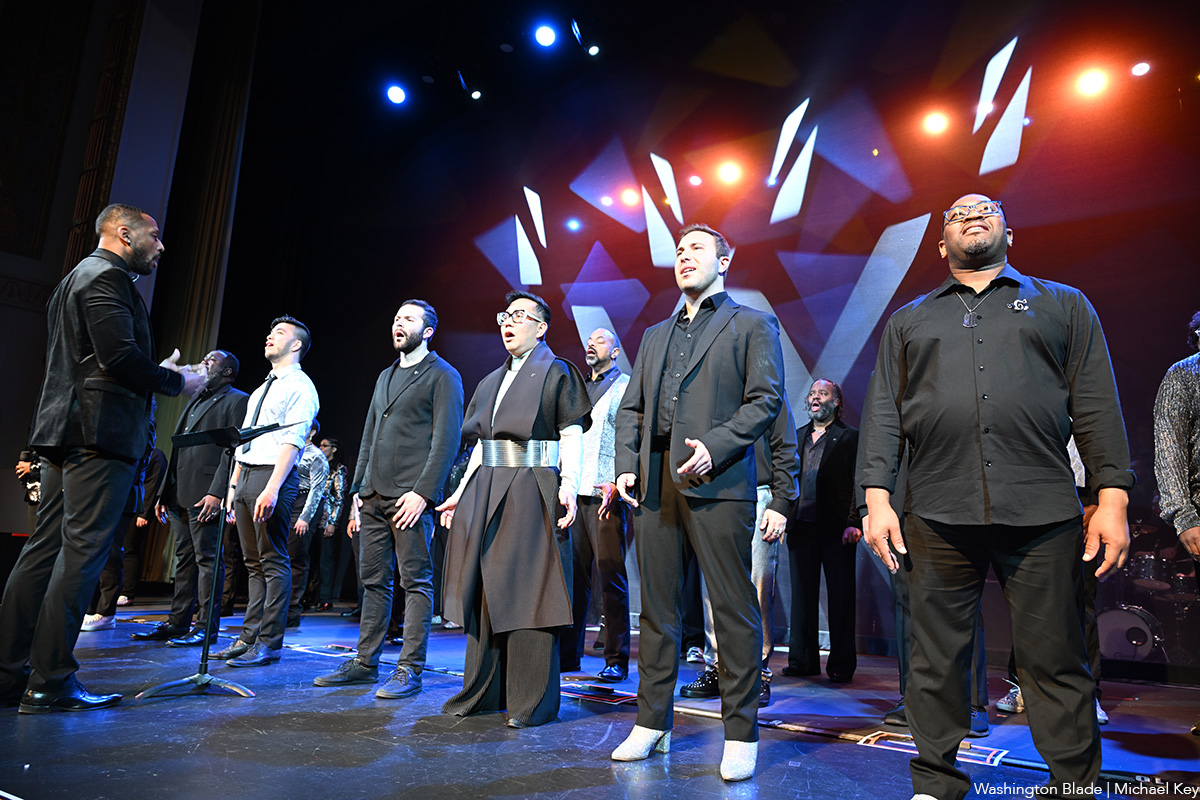

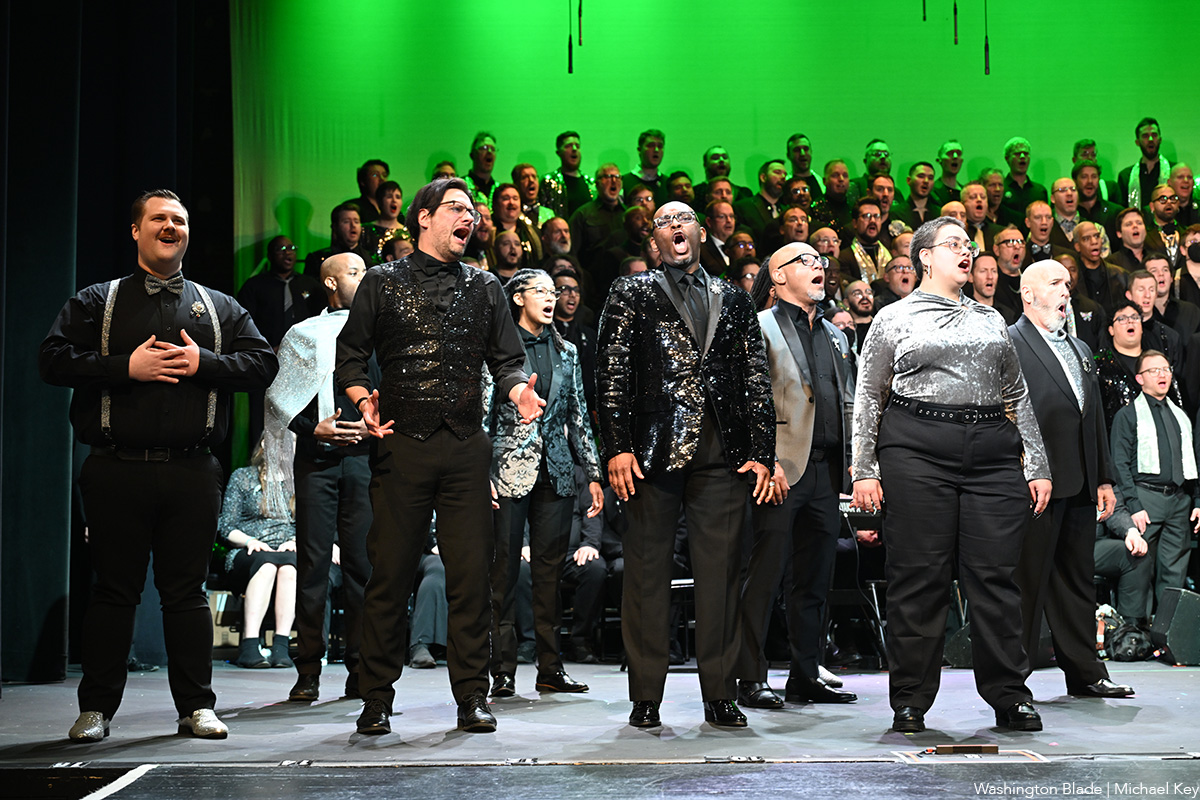
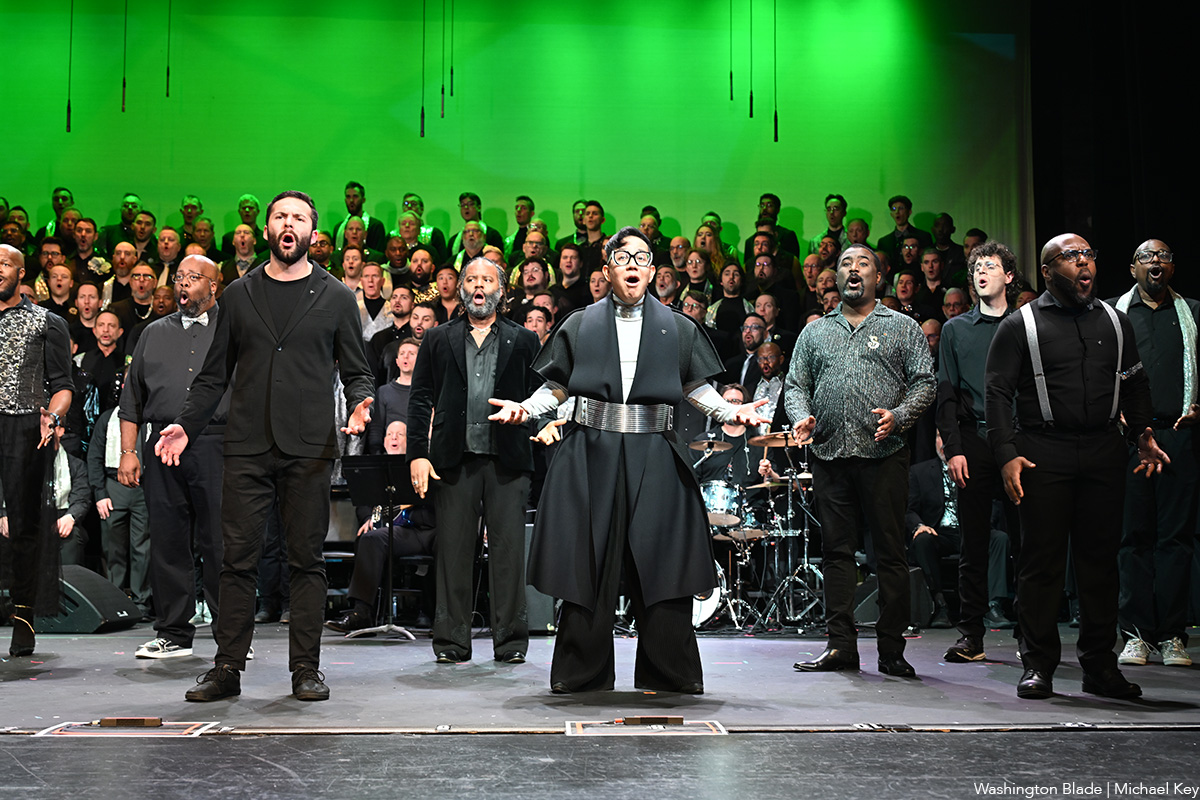
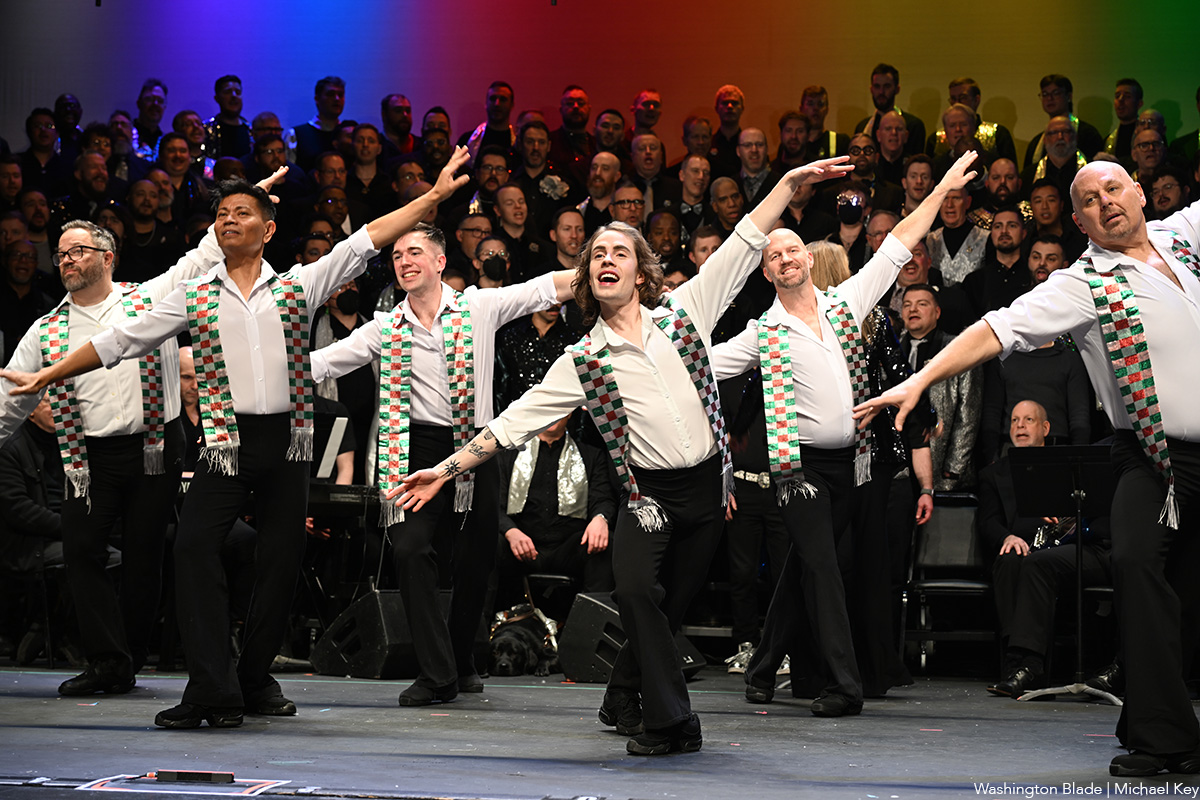

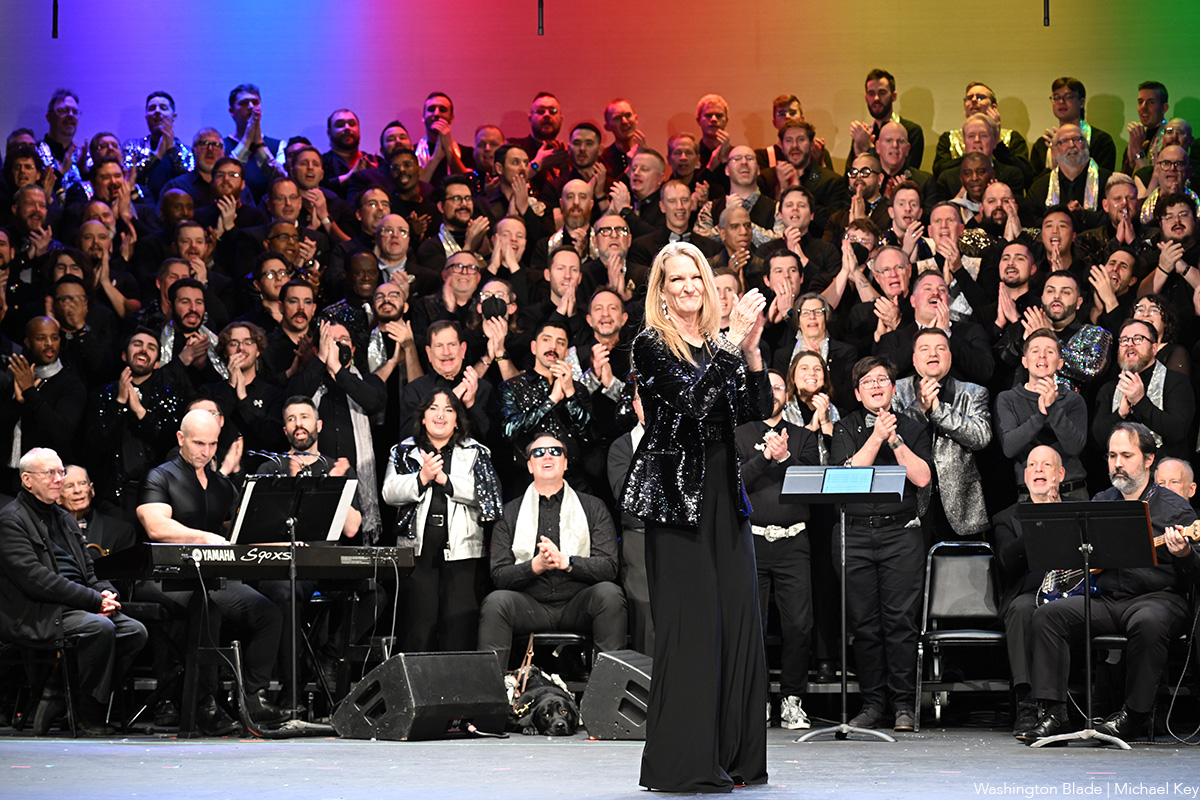
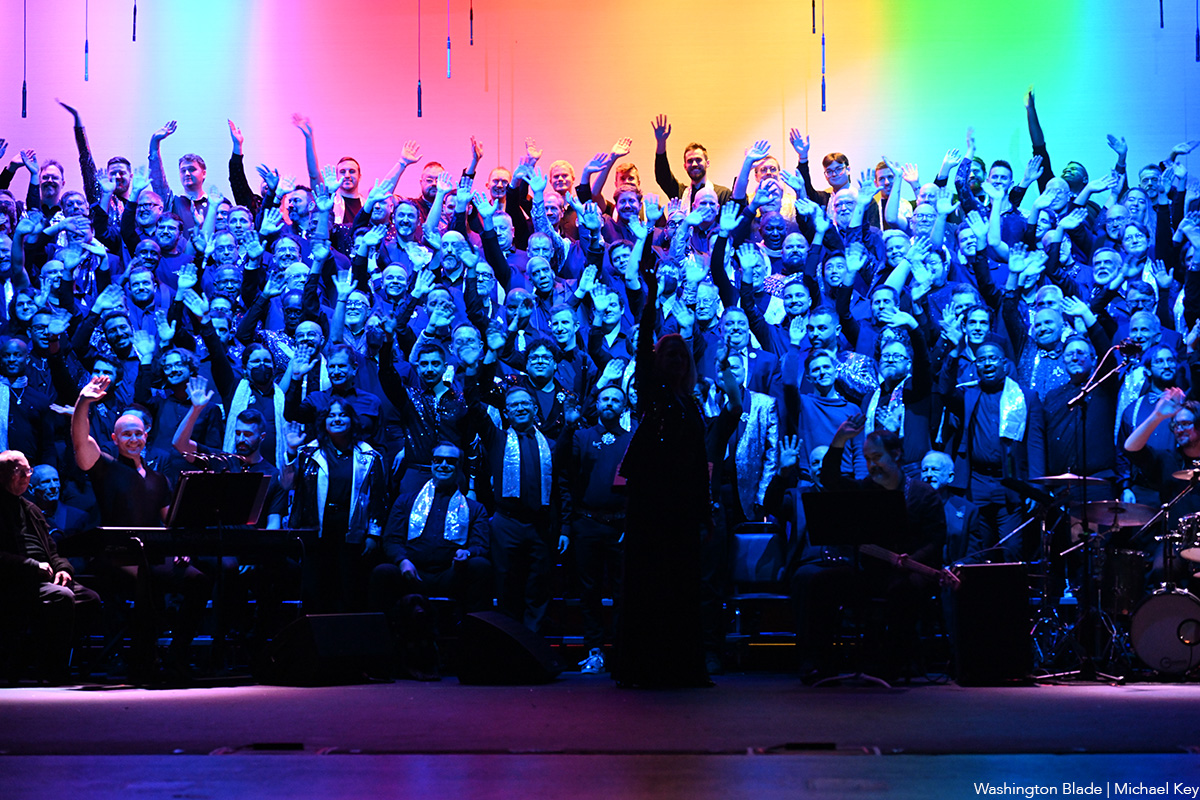
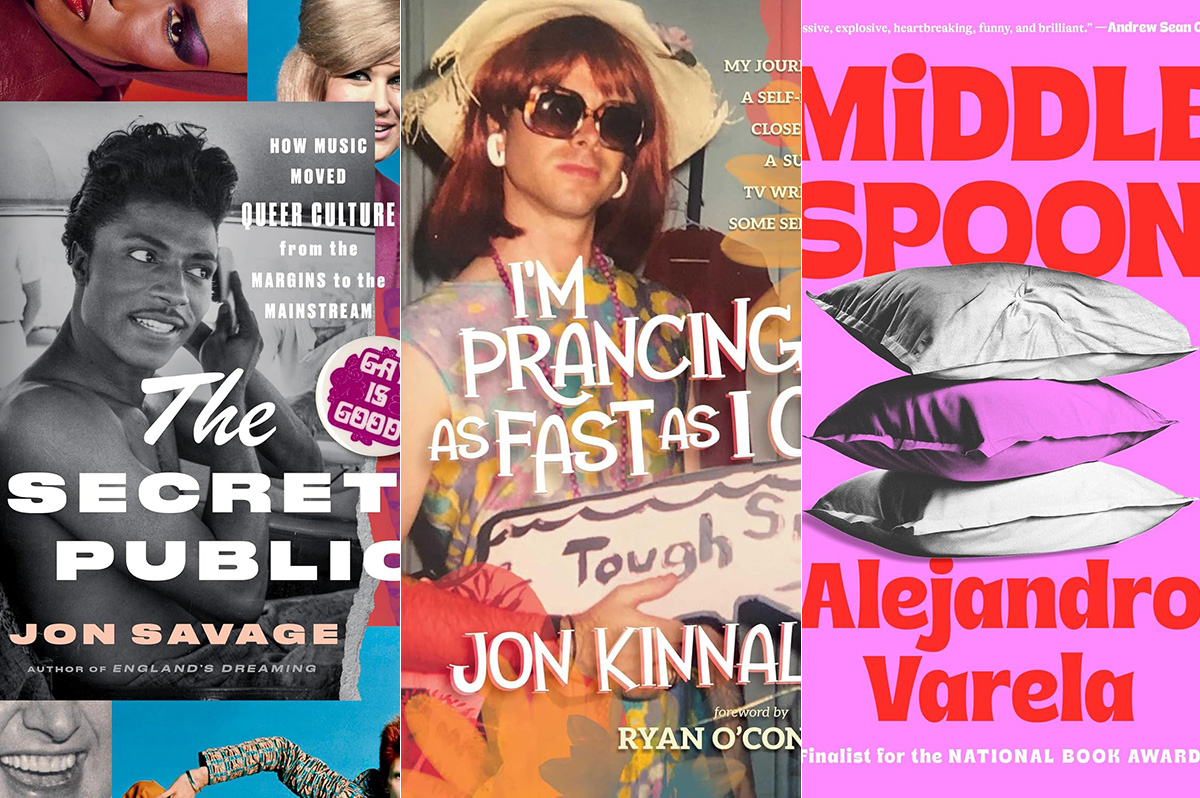
Santa will be very relieved.
You’ve taken most of the burden off him by making a list and checking it twice on his behalf. The gift-buying in your house is almost done – except for those few people who are just so darn hard to buy for. So what do you give to the person who has (almost) everything? You give them a good book, like maybe one of these.
Memoir and biography
The person who loves digging into a multi-level memoir will be happy unwrapping “Blessings and Disasters: A Story of Alabama” by Alexis Okeowo (Henry Holt). It’s a memoir about growing up Black in what was once practically ground zero for the Confederacy. It’s about inequality, it busts stereotypes, and yet it still oozes love of place. You can’t go wrong if you wrap it up with “Queen Mother: Black Nationalism, Reparations, and the Untold Story of Audley Moore” by Ashley D. Farmer (Pantheon). It’s a chunky book with a memoir with meaning and plenty of thought.
For the giftee on your list who loves to laugh, wrap up “In My Remaining Years” by Jean Grae (Flatiron Books). It’s part memoir, part comedy, a look back at the late-last-century, part how-did-you-get-to-middle-age-already? and all fun. Wrap it up with “Here We Go: Lessons for Living Fearlessly from Two Traveling Nanas” by Eleanor Hamby and Dr. Sandra Hazellip with Elisa Petrini (Viking). It’s about the adventures of two 80-something best friends who seize life by the horns – something your giftee should do, too.
If there’ll be someone at your holiday table who’s finally coming home this year, wrap up “How I Found Myself in the Midwest” by Steve Grove (Simon & Schuster). It’s the story of a Silicon Valley worker who gives up his job and moves with his family to Minnesota, which was once home to him. That was around the time the pandemic hit, George Floyd was murdered, and life in general had been thrown into chaos. How does someone reconcile what was with what is now? Pair it with “Homestand: Small Town Baseball and the Fight for the Soul of America” by Will Bardenwerper (Doubleday). It’s set in New York and but isn’t that small-town feel universal, no matter where it comes from?
Won’t the adventurer on your list be happy when they unwrap “I Live Underwater” by Max Gene Nohl (University of Wisconsin Press)? They will, when they realize that this book is by a former deep-sea diver, treasure hunter, and all-around daredevil who changed the way we look for things under water. Nohl died more than 60 years ago, but his never-before-published memoir is fresh and relevant and will be a fun read for the right person.
If celeb bios are your giftee’s thing, then look for “The Luckiest” by Kelly Cervantes (BenBella Books). It’s the Midwest-to-New-York-City story of an actress and her life, her marriage, and what she did when tragedy hit. Filled with grace, it’s a winner.
Your music lover won’t want to open any other gifts if you give “Only God Can Judge Me: The Many Lives of Tupac Shakur” by Jeff Pearlman (Mariner Books). It’s the story of the life, death, and everything in-between about this iconic performer, including the mythology that he left behind. Has it been three decades since Tupac died? It has, but your music lover never forgets. Wrap it up with “Point Blank (Quick Studies)” by Bob Dylan, text by Eddie Gorodetsky, Lucy Sante, and Jackie Hamilton (Simon & Schuster), a book of Dylan’s drawings and artwork. This is a very nice coffee-table size book that will be absolutely perfect for fans of the great singer and for folks who love art.
For the giftee who’s concerned with their fellow man, “The Lost and the Found: A True Story of Homelessness, Found Family and Second Chances” by Kevin Fagan (One Signal / Atria) may be the book to give. It’s a story of two “unhoused” people in San Francisco, one of the country’s wealthiest cities, and their struggles. There’s hope in this book, but also trouble and your giftee will love it.
For the person on your list who suffered loss this year, give “Pine Melody” by Stacey Meadows (Independently Published), a memoir of loss, grief, and healing while remembering the person gone.
LGBTQ fiction
For the mystery lover who wants something different, try “Crime Ink: Iconic,” edited by John Copenhaver and Salem West (Bywater Books), a collection of short stories inspired by “queer legends” and allies you know. Psychological thrillers, creepy crime, cozies, they’re here.
Novel lovers will want to curl up this winter with “Middle Spoon” by Alejandro Varela (Viking), a book about a man who appears to have it all, until his heart is broken and the fix for it is one he doesn’t quite understand and neither does anyone he loves.
LGBTQ studies – nonfiction
For the young man who’s struggling with issues of gender, “Before They Were Men” by Jacob Tobia (Harmony Books) might be a good gift this year. These essays on manhood in today’s world works to widen our conversations on the role politics and feminism play in understanding masculinity and how it’s time we open our minds.
If there’s someone on your gift list who had a tough growing-up (didn’t we all?), then wrap up “I’m Prancing as Fast as I Can” by Jon Kinnally (Permuted Press / Simon & Schuster). Kinnally was once an awkward kid but he grew up to be a writer for TV shows you’ll recognize. You can’t go wrong gifting a story like that. Better idea: wrap it up with “So Gay for You: Friendship, Found Family, & The Show That Started It All” by Leisha Hailey & Kate Moennig (St. Martin’s Press), a book about a little TV show that launched a BFF-ship.
Who doesn’t have a giftee who loves music? You sure do, so wrap up “The Secret Public: How Music Moved Queer Culture from the Margins to the Mainstream” by Jon Savage (Liveright). Nobody has to tell your giftee that queer folk left their mark on music, but they’ll love reading the stories in this book and knowing what they didn’t know.
The Blade may receive commissions from qualifying purchases made via this post.
Theater
Studio’s ‘Mother Play’ draws from lesbian playwright’s past
A poignant memory piece laced with sadness and wry laughs
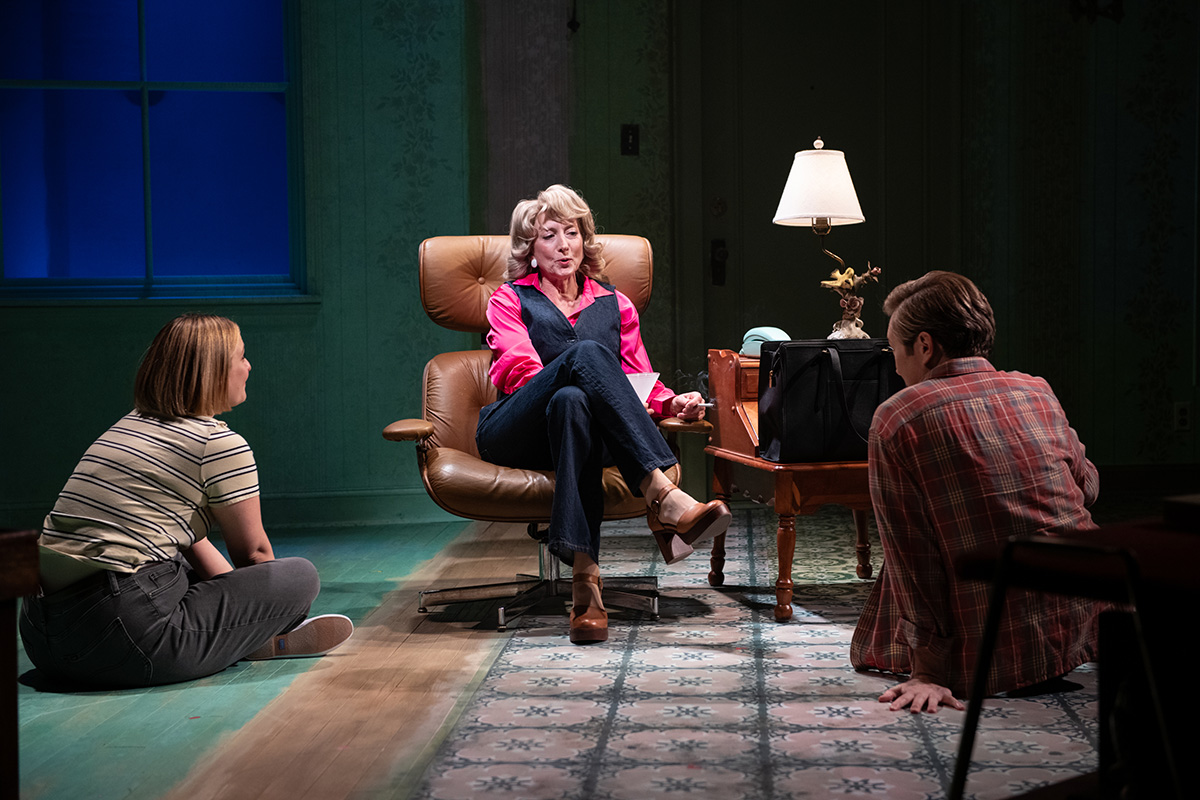
‘The Mother Play’
Through Jan. 4
Studio Theatre
1501 14th St., N.W.
$42 – $112
Studiotheatre.org
“The Mother Play” isn’t the first work by Pulitzer Prize-winning lesbian playwright Paula Vogel that draws from her past. It’s just the most recent.
Currently enjoying an extended run at Studio Theatre, “The Mother Play,” (also known as “The Mother Play: A Play in Five Evictions,” or more simply, “Mother Play”) is a 90-minute powerful and poignant memory piece laced with sadness and wry laughs.
The mother in question is Phyllis Herman (played exquisitely by Kate Eastwood Norris), a divorced government secretary bringing up two children under difficult circumstances. When we meet them it’s 1964 and the family is living in a depressing subterranean apartment adjacent to the building’s trash room.
Phyllis isn’t exactly cut out for single motherhood; an alcoholic chain-smoker with two gay offspring, Carl and Martha, both in their early teens, she seems beyond her depth.
In spite (or because of) the challenges, things are never dull in the Herman home. Phyllis is warring with landlords, drinking, or involved in some other domestic intrigue. At the same time, Carl is glued to books by authors like Jane Austen, and queer novelist Lytton Strachey, while Martha is charged with topping off mother’s drinks, not a mean feat.
Despite having an emotionally and physically withholding parent, adolescent Martha is finding her way. Fortunately, she has nurturing older brother Carl (the excellent Stanley Bahorek) who introduces her to queer classics like “The Well of Loneliness” by Radclyffe Hall, and encourages Martha to pursue lofty learning goals.
Zoe Mann’s Martha is just how you might imagine the young Vogel – bright, searching, and a tad awkward.
As the play moves through the decades, Martha becomes an increasingly confident young lesbian before sliding comfortably into early middle age. Over time, her attitude toward her mother becomes more sympathetic. It’s a convincing and pleasing performance.
Phyllis is big on appearances, mainly her own. She has good taste and a sharp eye for thrift store and Goodwill finds including Chanel or a Von Furstenberg wrap dress (which looks smashing on Eastwood Norris, by the way), crowned with the blonde wig of the moment.
Time and place figure heavily into Vogel’s play. The setting is specific: “A series of apartments in Prince George’s and Montgomery County from 1964 to the 21st century, from subbasement custodial units that would now be Section 8 housing to 3-bedroom units.”
Krit Robinson’s cunning set allows for quick costume and prop changes as decades seamlessly move from one to the next. And if by magic, projection designer Shawn Boyle periodically covers the walls with scurrying roaches, a persistent problem for these renters.
Margot Bordelon directs with sensitivity and nuance. Her take on Vogel’s tragicomedy hits all the marks.
Near the play’s end, there’s a scene sometimes referred to as “The Phyllis Ballet.” Here, mother sits onstage silently in front of her dressing table mirror. She is removed of artifice and oozes a mixture of vulnerability but not without some strength. It’s longish for a wordless scene, but Bordelon has paced it perfectly.
When Martha arranges a night of family fun with mom and now out and proud brother at Lost and Found (the legendary D.C. gay disco), the plan backfires spectacularly. Not long after, Phyllis’ desire for outside approval resurfaces tenfold, evidenced by extreme discomfort when Carl, her favorite child, becomes visibly ill with HIV/AIDS symptoms.
Other semi-autobiographical plays from the DMV native’s oeuvre include “The Baltimore Waltz,” a darkly funny, yet moving piece written in memory of her brother (Carl Vogel), who died of AIDS in 1988. The playwright additionally wrote “How I Learned to Drive,” an acclaimed play heavily inspired by her own experiences with sexual abuse as a teenager.
“The Mother Play” made its debut on Broadway in 2024, featuring Jessica Lange in the eponymous role, earning her a Tony Award nomination.
Like other real-life matriarch inspired characters (Mary Tyrone, Amanda Wingfield, Violet Weston to name a few) Phyllis Herman seems poised to join that pantheon of complicated, women.




















